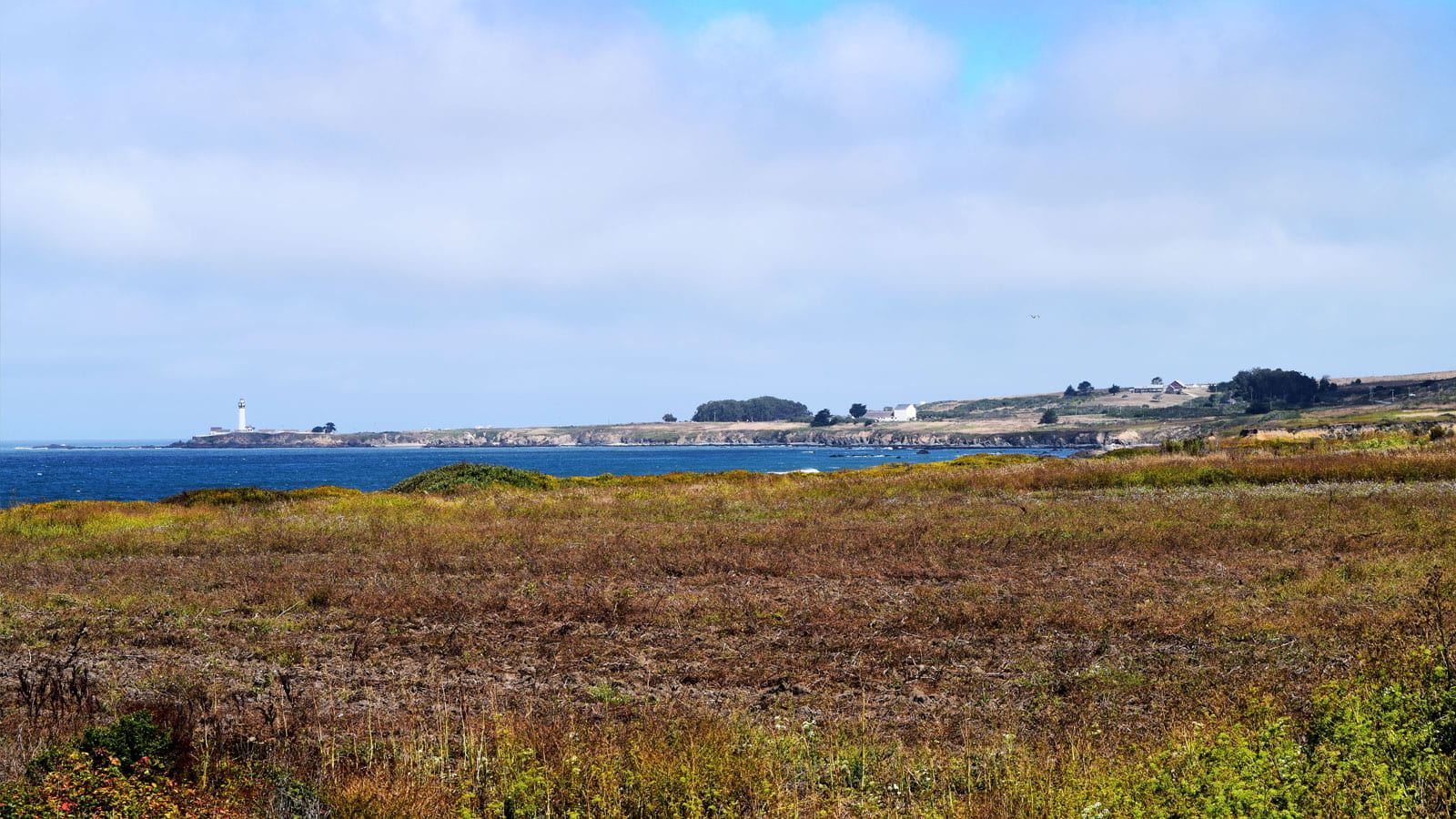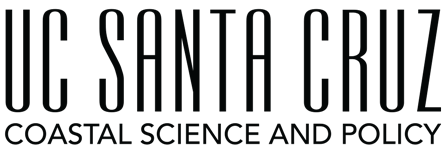FACULTY
Core Faculty
Core Faculty participate in course instruction and/or on program committees.
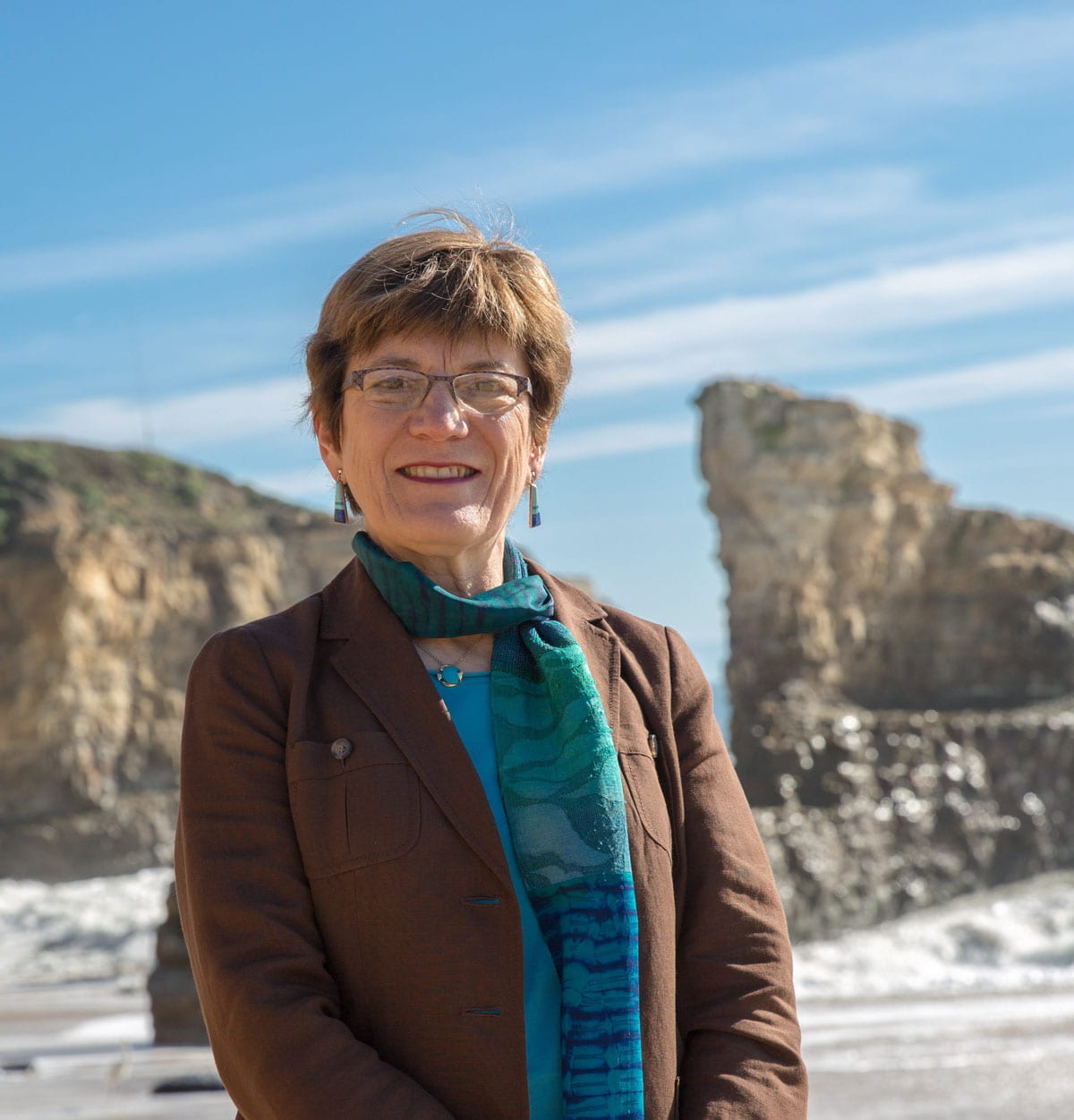
Email: akapusci@ucsc.edu
Website: https://kapsar.sites.ucsc.edu
CV: Short CV
Topics of Interest:
- Aquaculture/Water/Marine Systems
- Agroecology/Food Systems
- Biodiversity Conservation
- Ecology
- Innovation
- Sustainability
Anne Kapuscinski, Director
Core Faculty
Sustainability Science
Professor, Environmental Studies
Anne R. Kapuscinski is an interdisciplinary scholar committed to finding scientifically and socially robust solutions to a major challenge: how to perpetuate healthy aquatic ecosystems while sustaining resource uses that support human wellbeing. Her past research examined impacts of dams, fish hatcheries, aquaculture and genetic engineering on fish conservation. Her current research aims to shift aquaculture, the world’s fastest growing food sector, towards sustainability. Her team uses marine microalgae to achieve fish-free feeds, thus decouple aquaculture from ocean-caught forage fish, reduce nutrient and carbon emissions and improve food security. She also pursues ecological aquaculture strategies to close water and nutrient loops and conserve biodiversity. Anne participates actively in the science-policy interface, presently as Chair of the Board of Directors of the Union of Concerned Scientists and member of the Ocean Protection Council Science Advisory Team, and has been a scientific advisor to the U.S. Secretary of Agriculture (under three administrations), U.S. Food and Drug Administration, World Health Organization and Food and Agriculture Organization of the UN, Global Environment Facility, European Union Food Safety Agency, state of Minnesota, and on four U.S. National Academy of Science committees. She is Editor-in-Chief of the Sustainability Transitions domain of the open-access journal, Elementa: Science of the Anthropocene. Her awards include a 2019 Ocean Award in Innovation, Pew Fellow in Marine Conservation, and Distinguished Service Award from the Society for Conservation Biology, among others. As Director of the Coastal Science and Policy Program, Anne guides and builds a diverse, inclusive community of students, faculty and partners to pursue scalable solutions to pressing coastal and ocean challenges.
Watch Anne describe her research here or read more about Anne and her research team at: https://casfs.ucsc.edu/research/agroecological-science/aquaculture.html and https://kapsar.sites.ucsc.edu/.
Dr. Kapuscinski has been an advisor on the following CSP Capstone Projects:
Policy Pathways for Advancing Tribally-led Native Shellfish Aquaculture for Climate Resilient Ecosystems and Native Foodways in California (link coming in June 2024)
‘Sea’ing Further: Closing Knowledge Gaps & Improving Sustainability along the Aquafeed Supply Chain (link coming in June 2024)
Oceanic Manta Ray Conservation through Participatory Marine Spatial Planning in Bahía de Banderas, Mexico (link coming in June 2024)
Theory of Change for Sustainable Marine Aquaculture in China
Ocean impact tracking for ecopreneurs
Strengthening Community Co-Management of a Mekong River Fish Conservation Zone Network
Integrating Justice, Equity, Diversity and Inclusion within Conservation Non-profits
Rising risk of climate and weather impacts on energy supply infrastructure

Email: mhcarr@ucsc.edu
Website: RCLAB
Phone: 831-459-3958
Topics of Interest:
- Ecology/Natural History
- Kelp Forest Restoration
- Marine Protected Area Management
- Sustainability
- Water/Marine Systems
Mark Carr
Core Faculty
Ecology and Evolution
Professor, Ecology & Evolutionary Biology
Mark Carr studies the ecology of coastal marine and anadromous fishes, and coastal marine ecosystems, especially kelp forests. Mark’s research informs management and conservation topics including ecosystem-based fisheries management, design and evaluation of marine protected areas (MPAs), and large-scale, long-term monitoring studies.
He is a principal investigator with the Partnership for Interdisciplinary Studies of Coastal Oceans (PISCO). Currently, he is a member of the California Ocean Protection Council’s (OPC) Science Advisory Team, and NOAA’s MPA Federal Advisory Committee.
Dr. Carr has been an advisor on the following CSP Capstone Projects:
Advancing Future Community Engagement in Ecological Restoration (link coming in June 2024)
Co-Developing Guiding Principles for the Indigenous Marine Managed Area (IMMA) in Busuanga Island, Palawan, Philippines (link coming in June 2024)
Coral reef conservation in changing climates and human population
Ensuring a Sustainable Conch Fishery in Belize
Coral At Risk: The need for coral monitoring citizen science programs in Shenzhen City, China
Green Gravel in Baja California: Exploring a kelp restoration technique with a multisectoral lens

Email: dcroll@ucsc.edu
Website: Coastal Conservation Action Lab
Phone: 831-459-3610
Topics of Interest:
- Ecology/Natural History
- Innovation
- Marine Ecology
- Marine Conservation Biology
- Sharks/Ray/Turtle Conservation & Management
- Sustainability
- Water/Marine Systems
Don Croll
Core Faculty
Ecology and Evolution
Professor, Ecology & Evolutionary Biology
Don Croll is a Professor in Ecology and Evolutionary Biology, University of California, Santa Cruz (UCSC), Co-founder of the conservation non-profit Island Conservation, Founding partner of the conservation for-profit Conservation Metrics, Inc., and Faculty Director of the UCSC Natural Reserve System. He has conducted conservation research on island ecosystems and marine vertebrates for over 30 years, and published over 100 papers and articles on the conservation and ecology of marine species and island ecosystems. As a professor, has been dedicated to developing the research programs, courses, and graduate training needed for direct conservation action. As a conservationist, his work has helped inform the closure of California gill net fisheries, the establishment of a ban on commercial fishing for krill US federal waters, the CITES listing of several manta ray species, the establishment of protected islands in Mexico, and the protection of insular threatened species from island invasive species. He has trained over 500 undergraduates in marine ecology and conservation, conservation biology, and field methods in conservation, and together with his conservation partner, Bernie Tershy, he has trained 14 graduates and post docs that have gone on to significant positions in conservation and resource management.
Dr. Croll has been an advisor on the following CSP Capstone Projects:
Building Climate Resilience on Farms and in Cities
Between Shark and Livelihoods: Informing Policies for Thresher Shark Conservation in Alor, Indonesia
Improving Human Welfare in the Peruvian Mahi Mahi Fishery
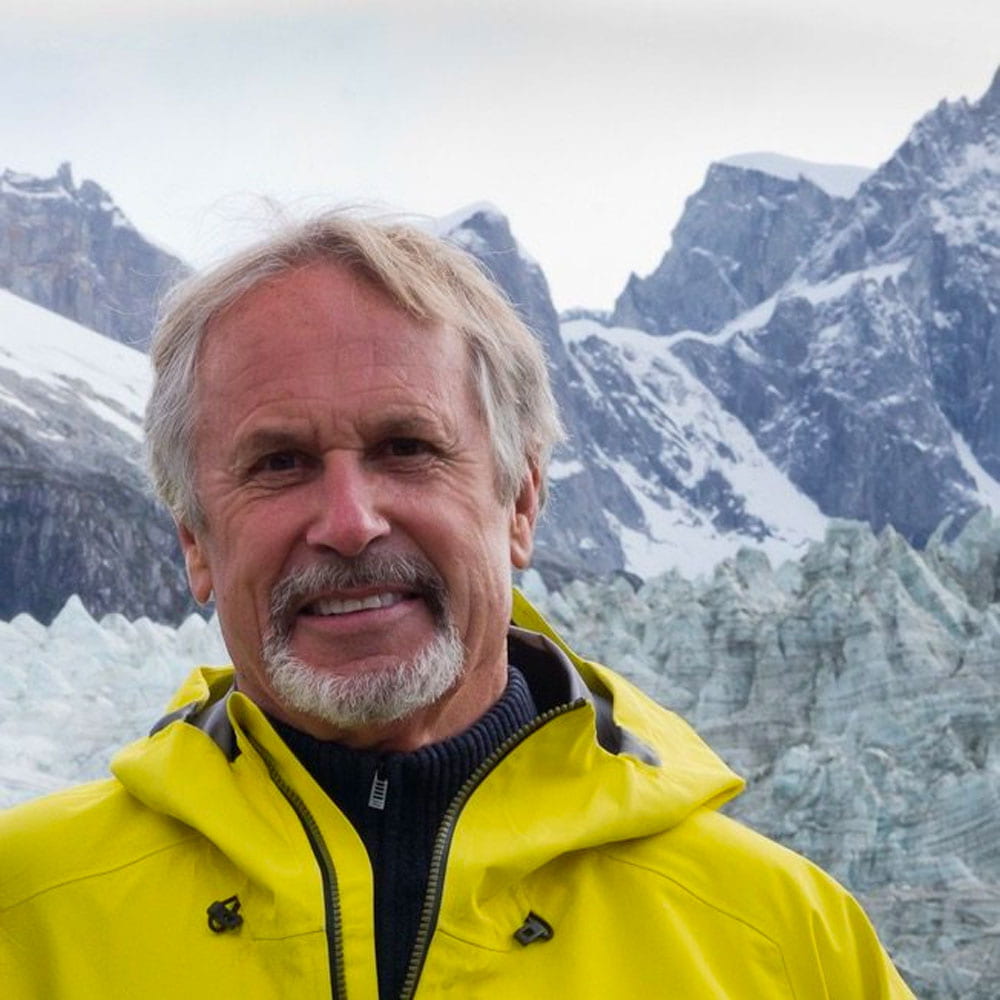
Website: ims.ucsc.edu
Phone: 831-459-5006
Topics of Interest:
- Climate Change
- Coastal Resilience/Adaptation/Mitigation
- Policy
- Sustainability
- Water/Marine Systems
Gary Griggs
Core Faculty
Earth & Ocean Sciences
Distinguished Professor, Earth and Planetary Sciences
Gary has taught at U.C. Santa Cruz for 53 years and served as the Director of the University’s Institute of Marine Sciences for 26 years where he led the development of the Coastal Science Campus. His work has focused on the coast of California and includes coastal processes, hazards, and the impacts of climate change and sea-level rise. He recently published his 12 th book. In 1998 he was given the Outstanding Physical and Biological Sciences Faculty Award and the Alumni Association honored him with a Distinguished Teaching Award in 2006. The California Coastal Commission and Sunset Magazine named him one of California’s Coastal Heroes in 2009, and in 2010 he was elected to the California Academy of Sciences. Gary chaired a committee in 2017 recommended by Governor Brown to update California’s sea-level rise projections. In 2016 he was appointed to the California Ocean Science Trust. He is also a member of the California Ocean Protection Council’s Science Advisory Team and served as chair of California’s 4th Climate Assessment Committee on Coasts and Ocean.
Dr. Griggs has been an advisor on the following CSP Capstone Projects:
Digital interfaces for human interaction around ecosystems/climate data
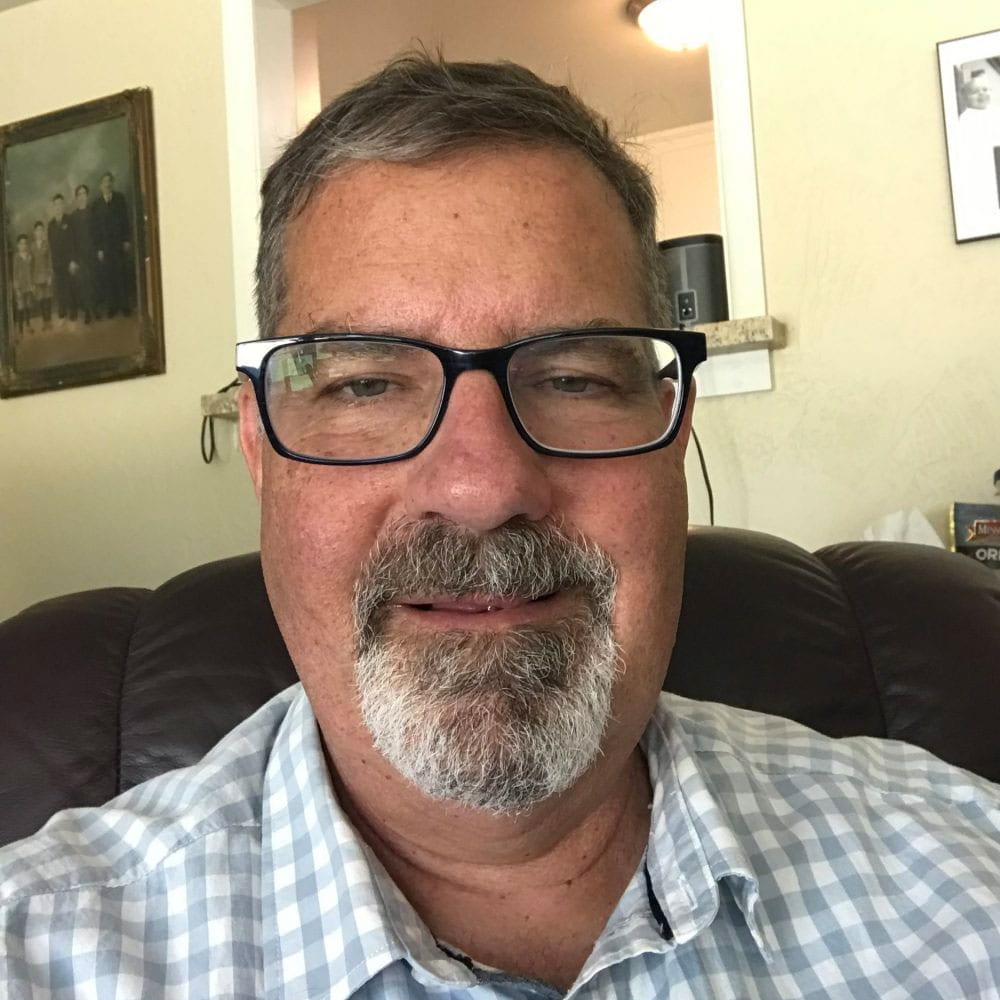
Email: bhaddad@ucsc.edu
Website: Center for Integrated Water Research
Topics of Interest:
- Fresh Water Governance and Management
- Renewable Energy Governance and Management
- Coastal Water Systems
- Climate Change Adaptation
- Governance of Endorheic Systems (inland lakes)
Brent Haddad
Core Faculty
Policy & Governance
Professor, Environmental Studies
Brent Haddad studies sustainable water and energy systems, including their governance, management, and policy. He utilizes tools and concepts from ecological economics and new institutional economics. His work yields insights on how to design policies to increase the reliability of water and energy systems while reducing their adverse impacts.
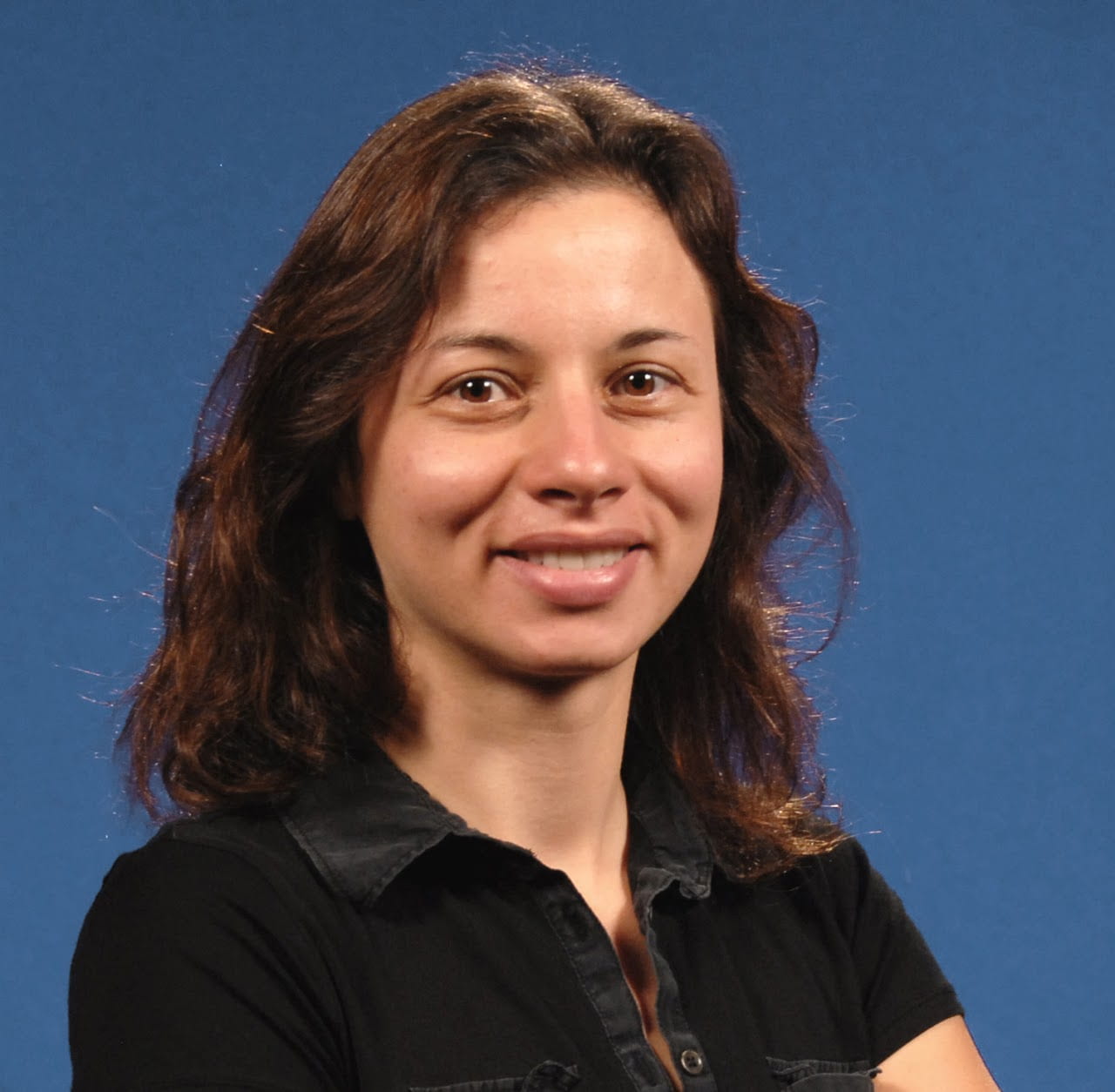
Email: gbhale@ucsc.edu
Website: https://sites.google.com/view/galinahale/home
Phone: 831-459-4745
Topics of Interest:
- Animal welfare and animal agriculture
- Analytical Finance
- Economics
- Food Systems
- Environmental/Social Justice
- Policy
- Sustainability
Galina Hale
Core Faculty
Economics
Professor, Economics
Galina Hale is a Professor of Economics at UC Santa Cruz. Previously she served as a Research Advisor at the Federal Reserve Bank of San Francisco. Galina's current research interests all revolver around climate change risks: understanding patterns of international capital flows and how they are affected by climate change risks, effects of climate risks on the stability of the financial system, the nexus between ESG sustainability goals and the financial system, and the role of the food system in achieving climate and other sustainability goals. Galina is a co-director of the UCSC Center for Analytical Finance (CAFIN).
Dr. Hale has been an advisor on the following CSP capstone projects:
Enhancing Environmental Management for Sustainable Coastal Resilience: A Comprehensive Policy Brief for Seagrass Protection and Rehabilitation (link coming in June 2024)

Email: kkroeker@ucsc.edu
Website: The Kroeker Lab
Topics of Interest:
- Community Ecology
- Drivers of Change in Marine Communities
- Forecasting and Management of Emergent Effects of Environmental Change
- Engagement-Topics Relevant to Management, Policy, and Decision-making
- Climate Change Adaptation
Kristy Kroeker
Core Faculty
Ecology and Evolution
Associate Professor, Ecology & Evolutionary Biology
Research in the Kroeker Lab addresses the drivers of change in marine communities. Our research program is advanced by two complementary approaches. First, we combine field experiments with laboratory manipulations to understand the underpinnings of community and ecosystem dynamics. Second, we use meta-analysis and modeling to synthesize empirical results and advance broad theoretical frameworks for predicting the emergent effects of environmental change. We use a variety of systems to answer our questions, from seagrass ecosystems and rocky intertidal communities to rocky reefs surrounding volcanic carbon dioxide vents and kelp forests.
Dr. Kroeker has been an advisor on the following CSP Capstone Projects:
Bridging the Gap Between Science and Policy for Effective Plastic Pollution Reduction (link coming in June 2024)
Building Climate Resilience on Farms and in Cities
Advancing Equitable Coastal Adaptation in the San Francisco Bay Area
Advancing Adoption of Algae for Cattle Feed to Reduce Methane Emissions

Website: Palkovacs Lab
Fisheries Collaborative Program
Phone: 831-502-7387 (Office)
Topics of Interest:
- Ecology
- Eco-Evolutionary Dynamics
- Fisheries
- Management & Policy
Eric Palkovacs
Core Faculty
Ecology & Evolution
Professor, Ecology and Evolutionary Biology
Director, Fisheries Collaborative Program
As Director of the Fisheries Collaborative Program, I oversee collaborative projects between UCSC and the NOAA Southwest Fisheries Science Center. I am interested in the eco-evolutionary dynamics of aquatic ecosystems. The study of eco-evolutionary dynamics focuses on bi-directional interactions occurring between ecology and evolution in nature. I examine how evolution shapes populations, communities, and ecosystems and how these ecological changes feed back to shape the trajectory of evolution. Because my research is at the interface of ecology and evolution, I utilize a diversity of techniques and approaches. In particular, I combine surveys of genetic, phenotypic, and ecological variation in nature with field and laboratory experiments to test the mechanisms underlying observed patterns. My research addresses basic questions in evolutionary ecology and applied questions in conservation biology and fisheries management.
Dr. Palkovacs has been an advisor on the following CSP Capstone Projects:
Striped Bass Ecology: Predicting Occupancy on the Lower Stanislaus to Inform Research & Management
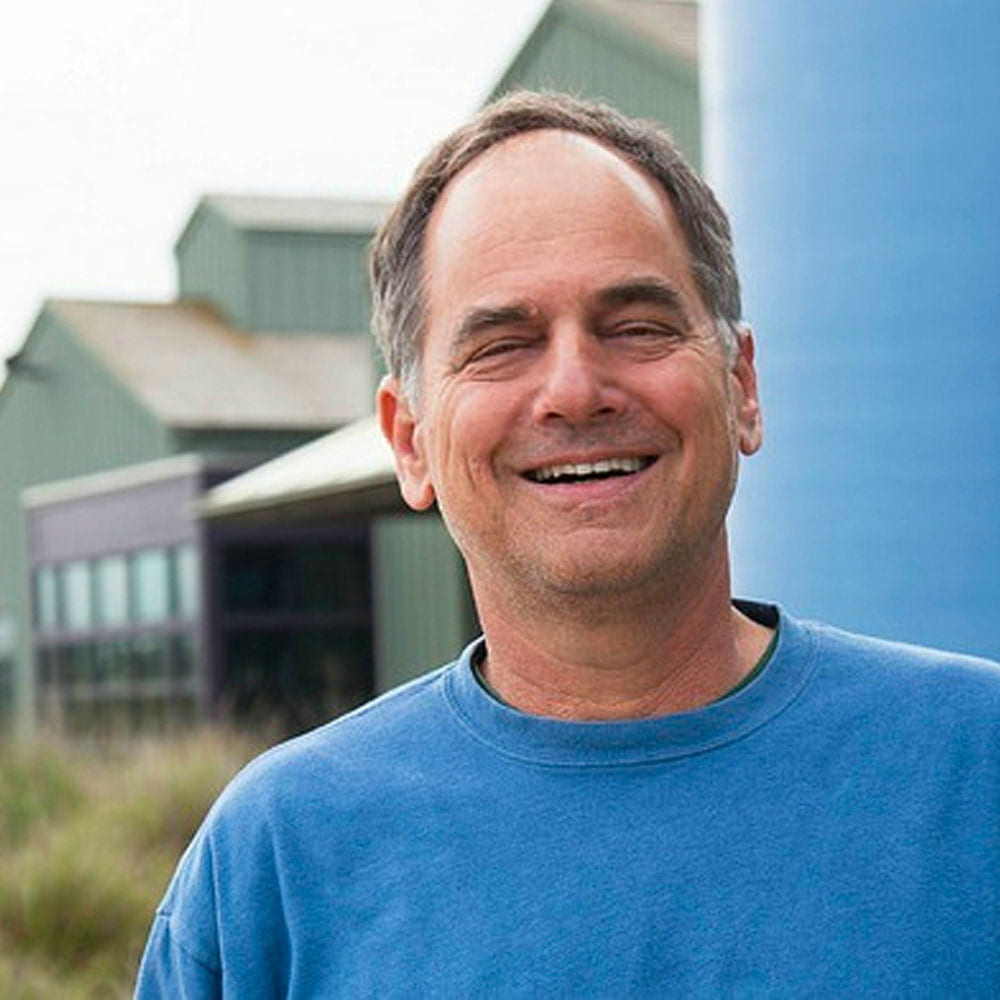
Email: raimondi@ucsc.edu
Website: https://rclab.ucsc.edu/home
Phone: 831-459-5674
Topics of Interest:
- Ecology/Natural History
- Policy & Management
- Kelp Forest Restoration
- Quantitative Analysis
- Sustainability
- Water/Marine Systems
Peter Raimondi
Core Faculty
Ecology and Evolution
Professor, Ecology & Evolutionary Biology
The Raimondi-Carr lab studies aspects of basic and applied ecology and evolutionary biology of coastal ecosystems. Our research spans the land-sea interface, and includes freshwater systems, estuaries, the rocky intertidal, and subtidal reefs. We aim to understand processes that influence behavior, distribution, and interactions of populations and communities of fishes, invertebrates and algae that constitute these ecosystems. Our goal is to advance understanding of these systems and to inform coastal policy and management.
Dr. Raimondi has been an advisor on the following CSP Capstone Projects:
Green Gravel in Baja California: Exploring a kelp restoration technique with a multisectoral lens
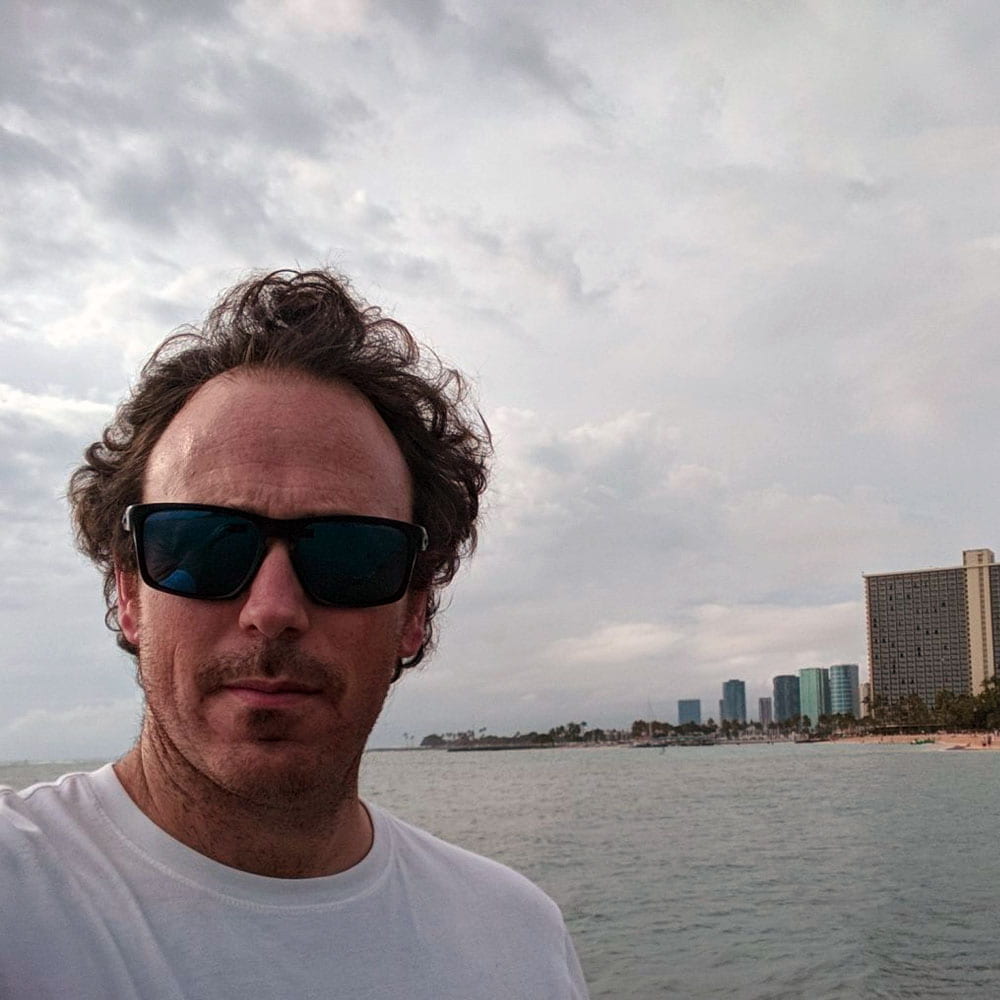
Email: breguero@ucsc.edu
Website: LinkedIn
Topics of Interest:
- Climate Change
- Coastal Engineering
- Coastal Hazards
- Coastal Management
- Climate Risk Reduction, Mitigation and Adaptation
- Disaster Risk Management
- Innovation
- Nature-based Solutions
- Resilience
- Solution-based Science
- Sustainability
Borja González Reguero
Core Faculty
Earth & Ocean Sciences
Borja works at the intersection of coastal engineering, risk management, and policy to advance sustainable solutions in coastal areas. His research and teaching interests span areas of climate change and adaptation. At UC Santa Cruz and the Coastal Science and Policy Program, he studies how climate change affects coastal hazards and advances the use of natural infrastructure and nature-based solutions for climate resilience, as multi-faceted strategies to reduce risk from sea level rise and extreme weather events. In close partnership with the public and private sector, his work has informed new policy proposals to protect coastlines and coastal infrastructure in the U.S. and internationally, value U.S. coral reefs as natural infrastructure, and developed innovative resilience insurance concepts that align climate risk and environmental goals (e.g. reef insurance in Mexico and Hawaii). Dr. Reguero holds a Ph.D. in Civil Engineering and Environmental Hydraulics, a M.S. in Coastal and Port Engineering, and a M.S. in Applied Economics.
Google scholar
https://scholar.google.com/citations?user=wQRnX2AAAAAJ&hl=es
Dr. Reguero has been an advisor on the following CSP Capstone Projects:
Advancing Equitable Coastal Adaptation in the San Francisco Bay Area
Rising risk of climate and weather impacts on energy supply infrastructure
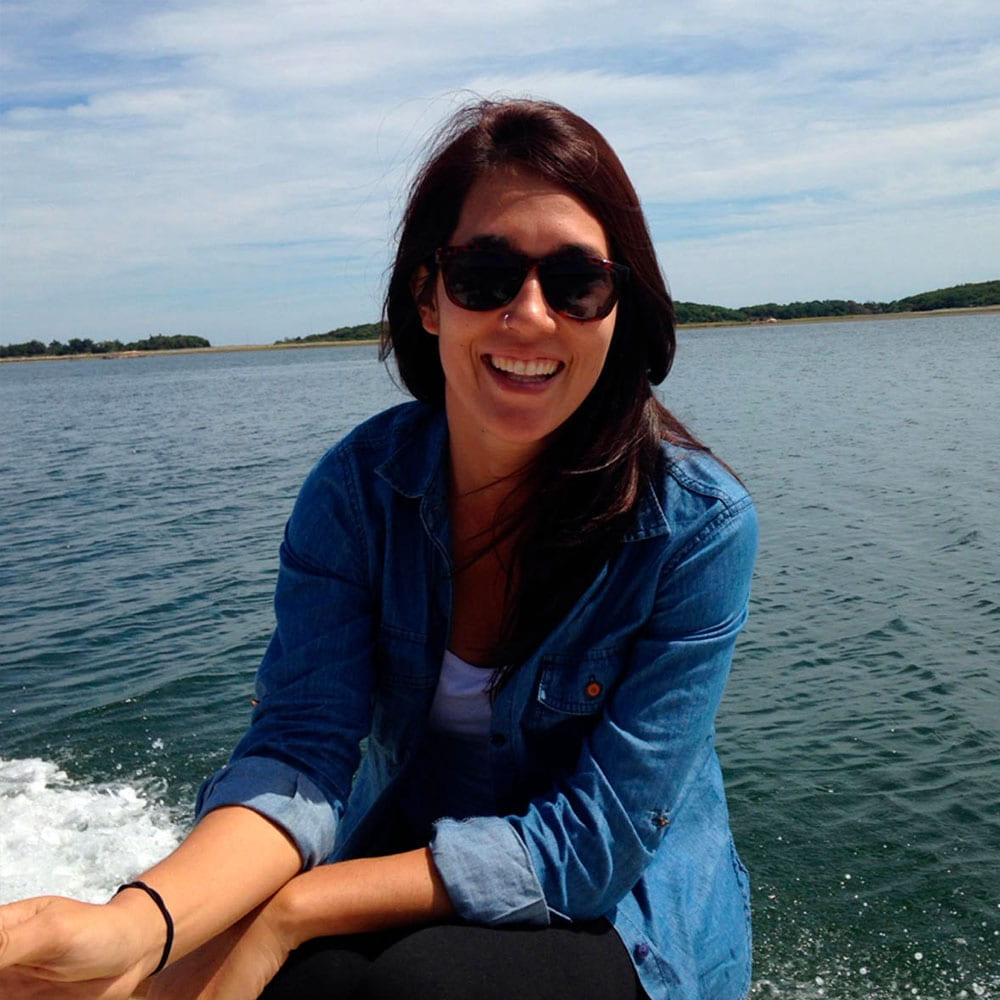
Email: klseto@ucsc.edu
Website: www.katherineseto.com
Topics of Interest:
- Agroecology/Food Systems
- Fisheries
- Political Ecology/Geography
- Water/Marine Systems
- Sustainability
Katherine Seto
Core Faculty
Policy & Governance
Assistant Professor, Environmental Studies
Katherine Seto’s research centers on coupled human and natural systems dynamics in marine and coastal systems. Her primary areas of focus are 1) the contribution of marine resources to food and livelihood security, 2) governing marine and coastal systems for resource equity and sustainability, and 2) maritime security and globalization in a context of rapid global change. Katherine’s work informs marine resource management and policy reform, and spans multiple regions, including Europe, Asia, Africa, and North America.
Dr. Seto has been an advisor on the following CSP Capstone Projects:
The Plastic Crisis: A reality show we can only cancel collectively
Complexities in sea turtle bycatch: The case of artisanal fisheries in Northern Argentina
Towards equitable nature-based coastal adaptation in California
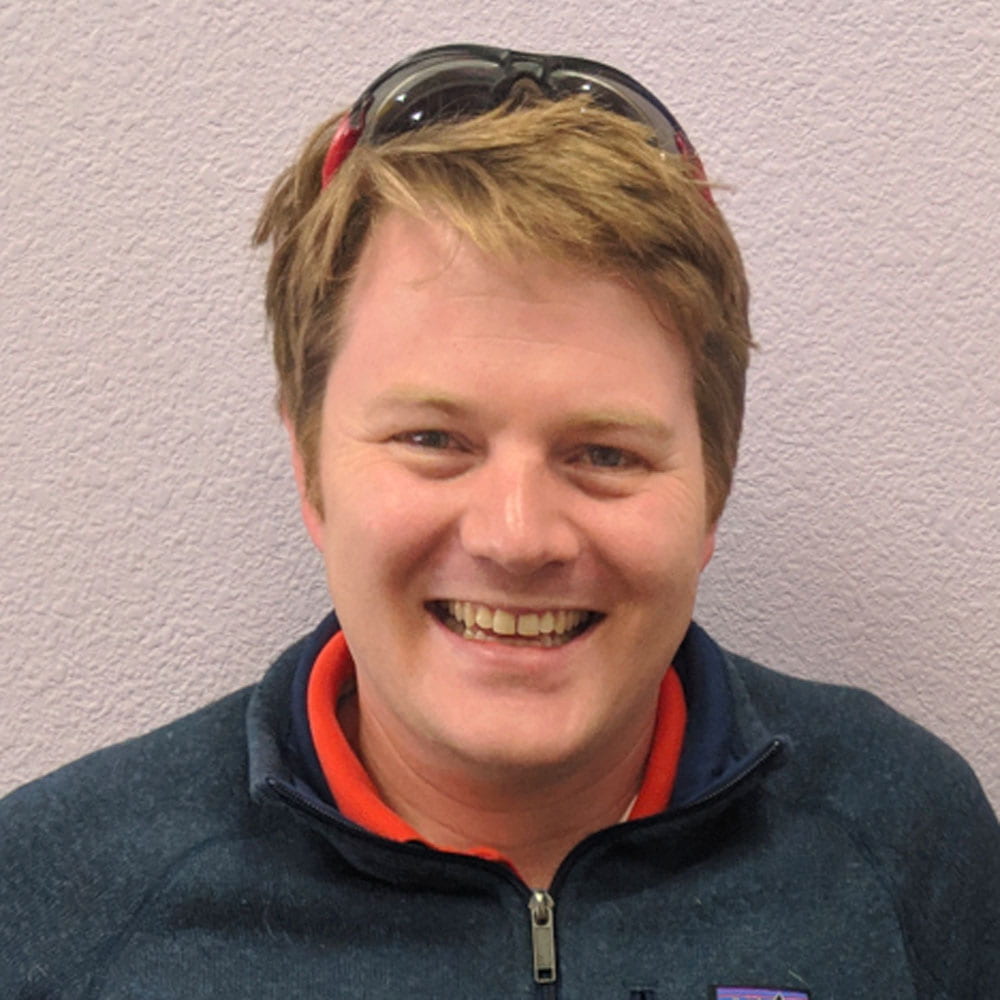
Website: people.ucsc.edu/~jwest1/
Phone: 831-459-4381
Topics of Interest:
- Economics
- Energy
- environmental/Social Justice
- Policy
- Quantitative Analysis
- Sustainability
Jeremy West
Core Faculty
Economics
Assistant Professor, Economics
Jeremy West is an economist who studies public policy and environmental sustainability. Much of his research considers the implications of behavioral economics for the efficacy of public policies related to energy. He evaluates the distributional consequences of policies as well as their overall efficiency. Jeremy is a faculty affiliate of the E2e Project, a research collaboration to improve energy efficiency. As a postdoctoral associate in the Center for Energy and Environmental Policy Research at MIT, he engaged extensively with government and industry parties working to improve environmental policies and practices.
Dr. West has been an advisor on the following CSP Capstone Projects:
Estimating the Co-Benefits of Transitioning to Clean Cooking in Ethiopia (link coming in June 2024)
Ocean impact tracking for ecopreneurs
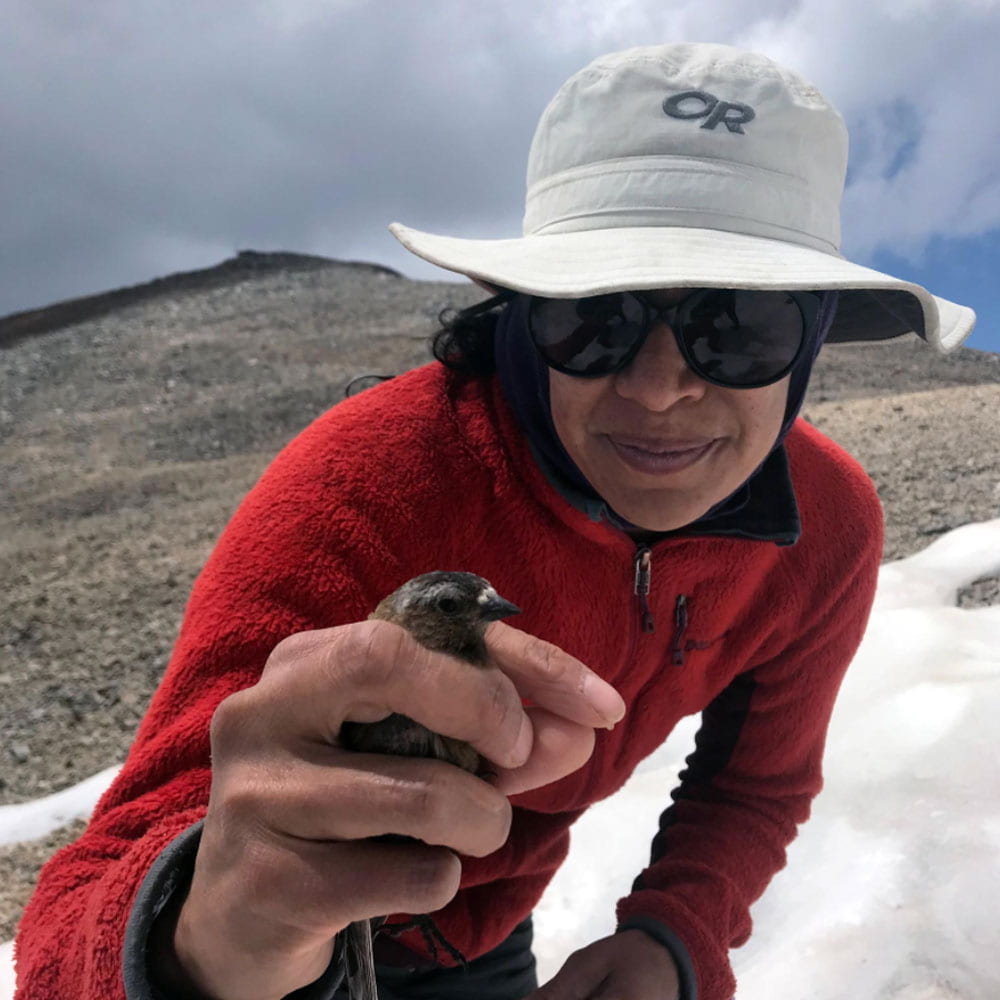
Website: Zavaleta Lab
Topics of Interest:
- Biodiversity Conservation & Stewardship
- Climate Change Adaptation
- Conservation Science
- Ecology/Natural History
- Ecosystem and Community Dynamics
- Meta-analysis
- Policy & Management
- Sustainability
Erika Zavaleta
Core Faculty
Ecology & Evolution
Professor, Ecology and Evolutionary Biology
Erika is an ecosystem ecologist interested in the implications of interacting global and regional environmental changes, biodiversity and ecosystem functioning and stewardship of wild ecosystems. Her research group studies the drivers and consequences of changing biological diversity and the role of ecology in guiding effective conservation practice.
Erika was appointed to the California Fish and Game Commission in March 2021.
Dr. Zavaleta has been an advisor on the following CSP Capstone Projects:
Equity Through Community Access to Climate Action Information
Affiliated Faculty
Affiliated Faculty are those who have expressed strong interest in co-mentoring CSP students on capstone projects.
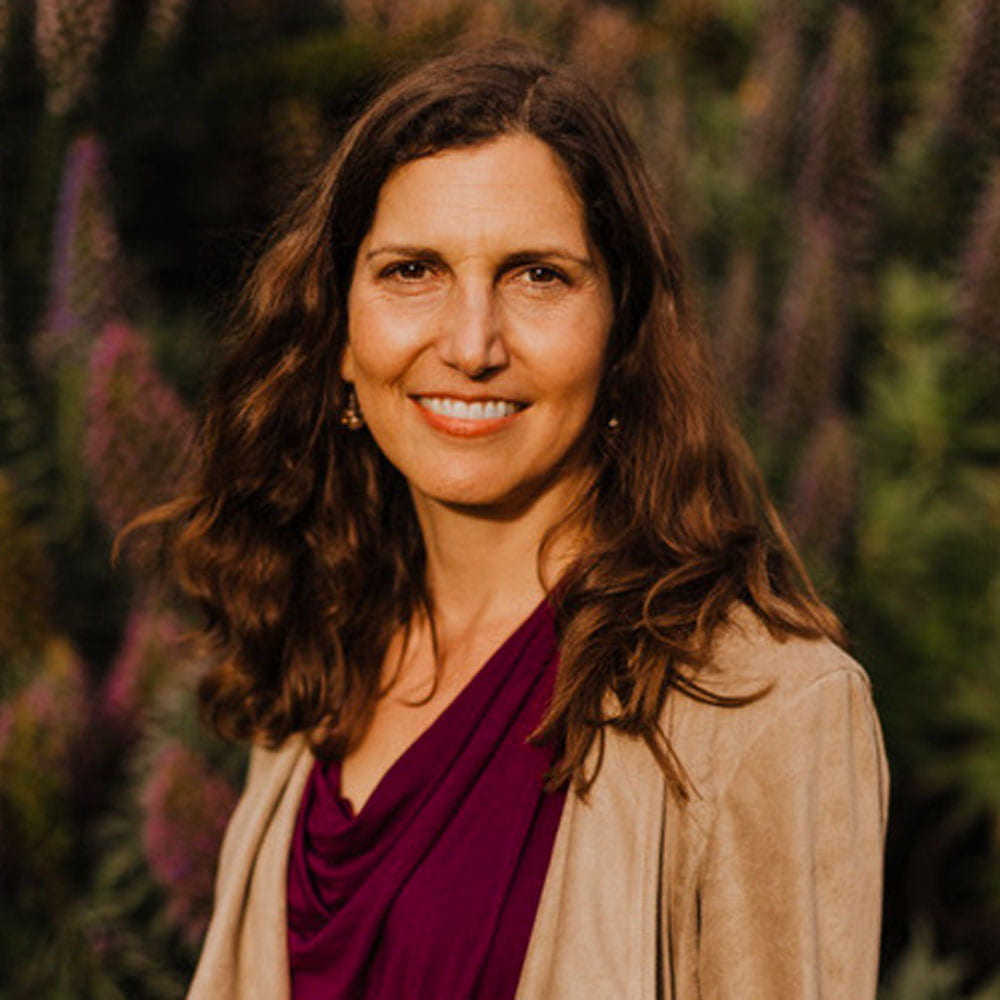
Phone: 831-502-7706 (Office)
Website: Alonzo Lab
Topics of Interest:
- Ecology
- Evolution
- Fisheries
- Modeling
Suzanne Alonzo
Affiliated Faculty
Ecology & Evolution
Professor, Ecology & Evolutionary Biology
Suzanne’s work involves theoretical and empirical research examining how coevolutionary dynamics and social interactions affect sexual selection and reproductive behaviors. She works primarily on the evolution and ecology fish reproduction, especially in Mediterranean wrasses. In addition, she and her research group explore how reproductive patterns and interactions affect population dynamics and management of marine populations.
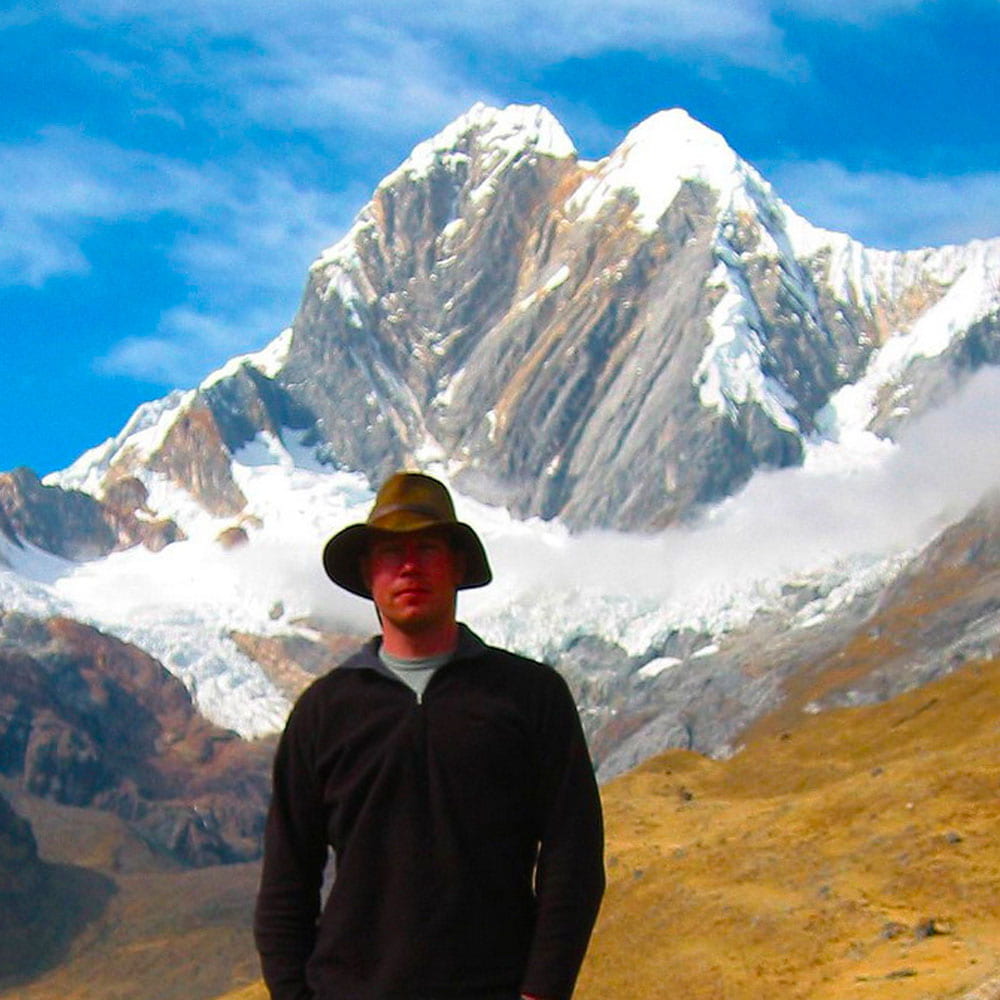
Website: https://people.ucsc.edu/~jbury/
Phone:831-459-3685
Topics of Interest:
- Environmental Justice/Social Movements
- Energy
- GIS
- Policy
- Political Ecology/Geography
Jeff Bury
Affiliated Faculty
Social Sciences
Associate Professor, Environmental Studies
Jeff Bury’s current research is centrally concerned with the transformation of natural and social environments in Latin America. His research has recently focused on new frontiers of extractive industries in the Andes and the political economy of climate change and glacier recession in the Cordillera Blanca (Peru). His work also focuses on conservation, ecotourism, and livelihood transformations in Peru, Chile and Costa Rica. His field research is linked closely to my interests in political ecology studies, environment and development in Latin America and field methods.
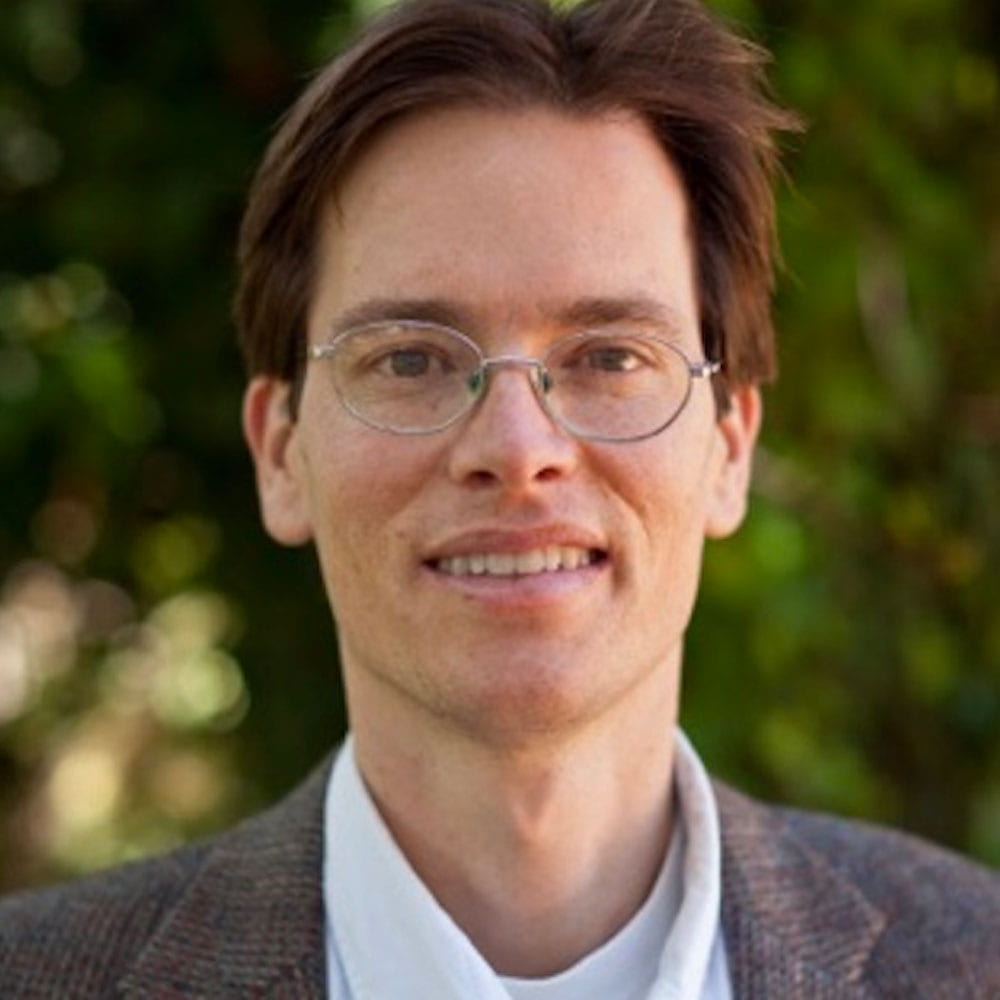
Website: Campbell Lab
Phone: 831-854-7948
Topics of Interest:
- Climate Change
- Energy
- Innovation
- Quantitative Analysis/Modeling
- Sustainability
- Water/Marine Systems
Elliott Campbell
Affiliate Faculty
Earth Sciences, Policy & Governance
Associate Professor, Environmental Studies
Dr. Elliott Campbell is an Associate Professor and the Stephen R. Gliessman Presidential Chair in Water Resources and Food System Sustainability in the Environmental Studies Department at UC Santa Cruz. Dr. Campbell’s research emphasizes the use of regional and global models to extrapolate from small-scale field measurements to policy-relevant spatial scales, particularly within the context of agroecology and global biogeochemical cycles. This work has led to his CAREER award from the National Science Foundation, appearances in media ranging from NPR to The Economist, and consultations to the U.S. EPA and other government agencies. He serves on the Associate Editorial Board at Frontiers in Ecology and the Environment and the faculty advisory committee at the University of California President’s Postdoctoral Fellowship Program. Dr. Campbell received his BS and MS from Stanford University and his PhD from the University of Iowa, and completed a postdoctoral fellowship at the Carnegie Institution for Science.
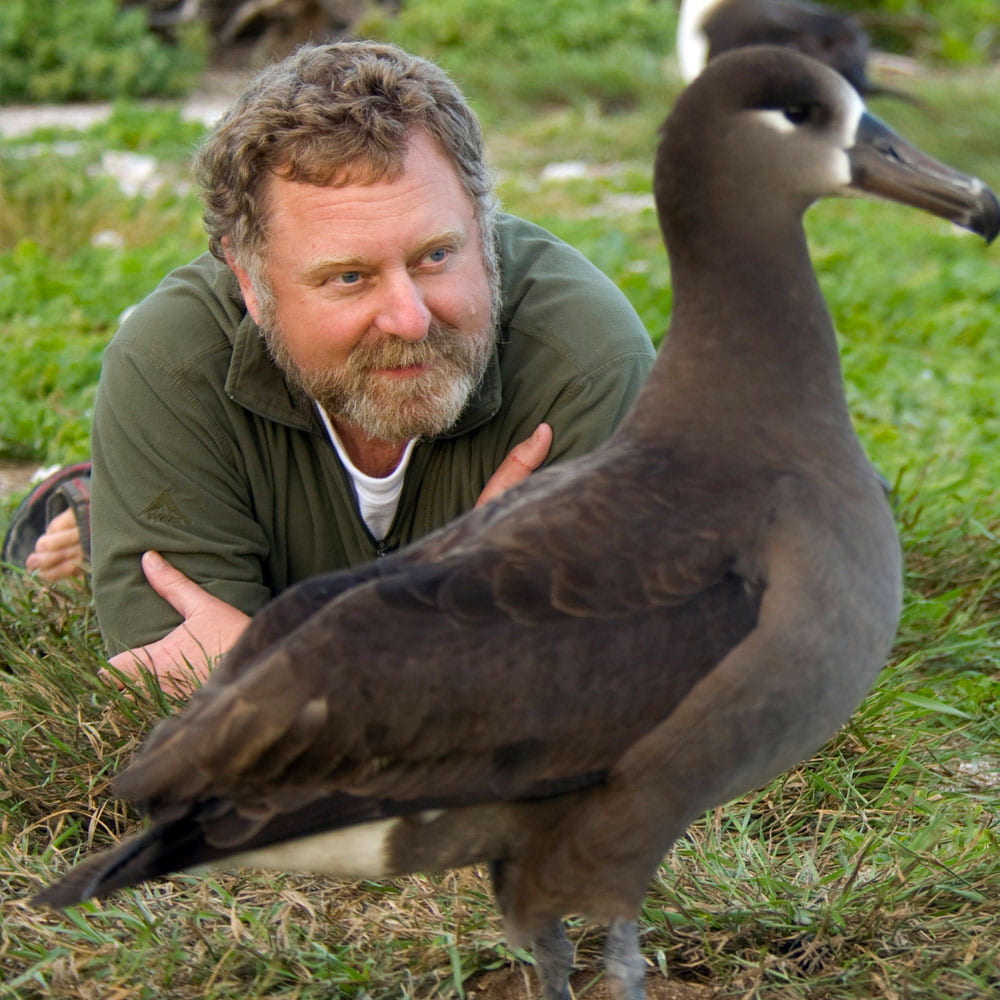
Website: Costa Lab
Phone: 831-459-2691
Topics of Interest:
- Ecology
- Physiology
- Marine Mammals and Birds
Daniel P. Costa
Affiliated Faculty
Ecology & Evolution
Distinguished Professor, Ecology & Evolutionary Biology
Director, Institute of Marine Sciences
Dan Costa studies the adaptations of marine mammals and seabirds to life in the marine environment, especially the movements, foraging ecology and energetics of pinnipeds and seabirds.
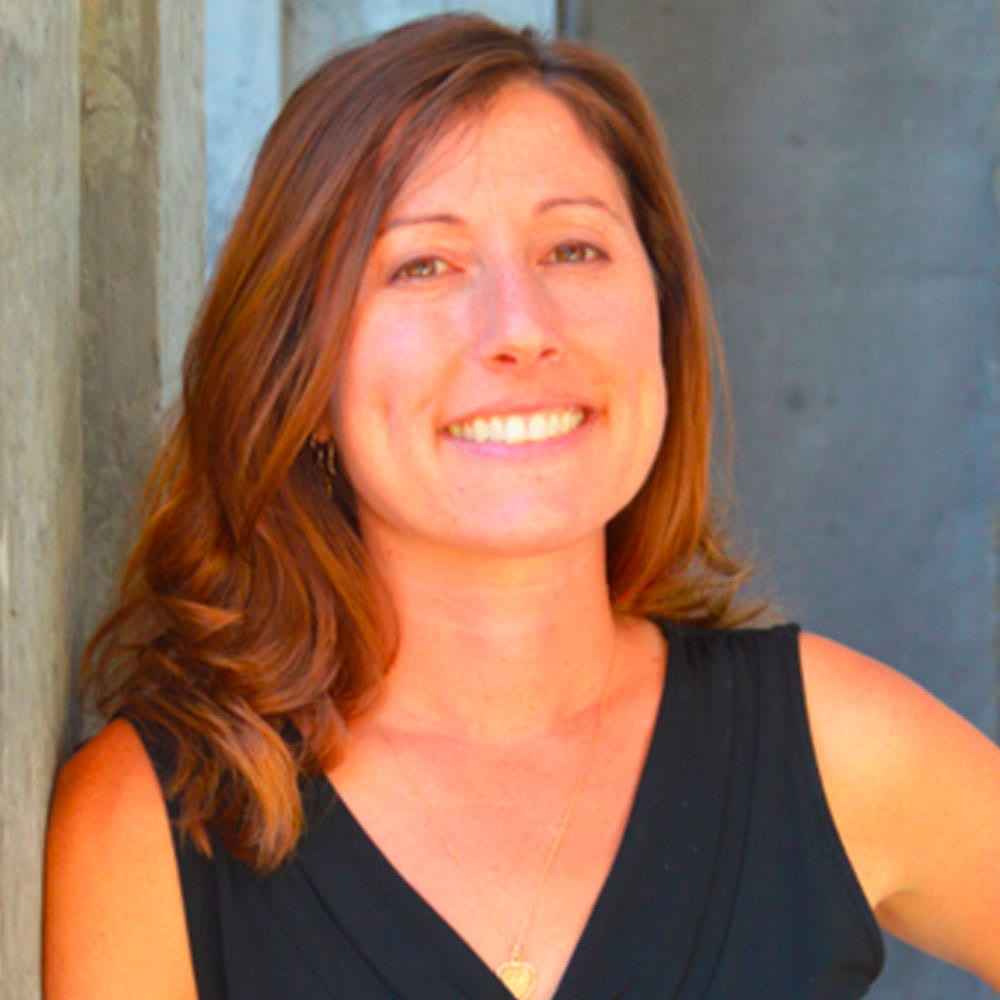
Email: lidillon@ucsc.edu
Website: http://lindseyldillon.com/
Topics of Interest:
- Environmental Justice
- Political Ecology
- Spatiality and Power
- Race & Racisms
- Science & Technology Studies
- Ecological Grief
- Climate Activism
Lindsey Dillon
Affiliated Faculty
Social Sciences
Assistant Professor, Sociology
Professor Dillon’s research focuses on environmental justice, urban ecologies, and histories of race and racism in U.S. cities. Trained as a geographer, she is especially interested the relationship between landscape and power, and brings this analytical focus to the study of coastal regions. Her current projects include a book manuscript on environmental politics in San Francisco’s Bayview-Hunters Point neighborhood, focusing on the Hunters Point Naval Shipyard, and a separate project on urban sustainability policies.
Dr. Dillon has been an advisor on the following CSP Capstone Projects:
Advancing Equitable Coastal Adaptation in the San Francisco Bay Area
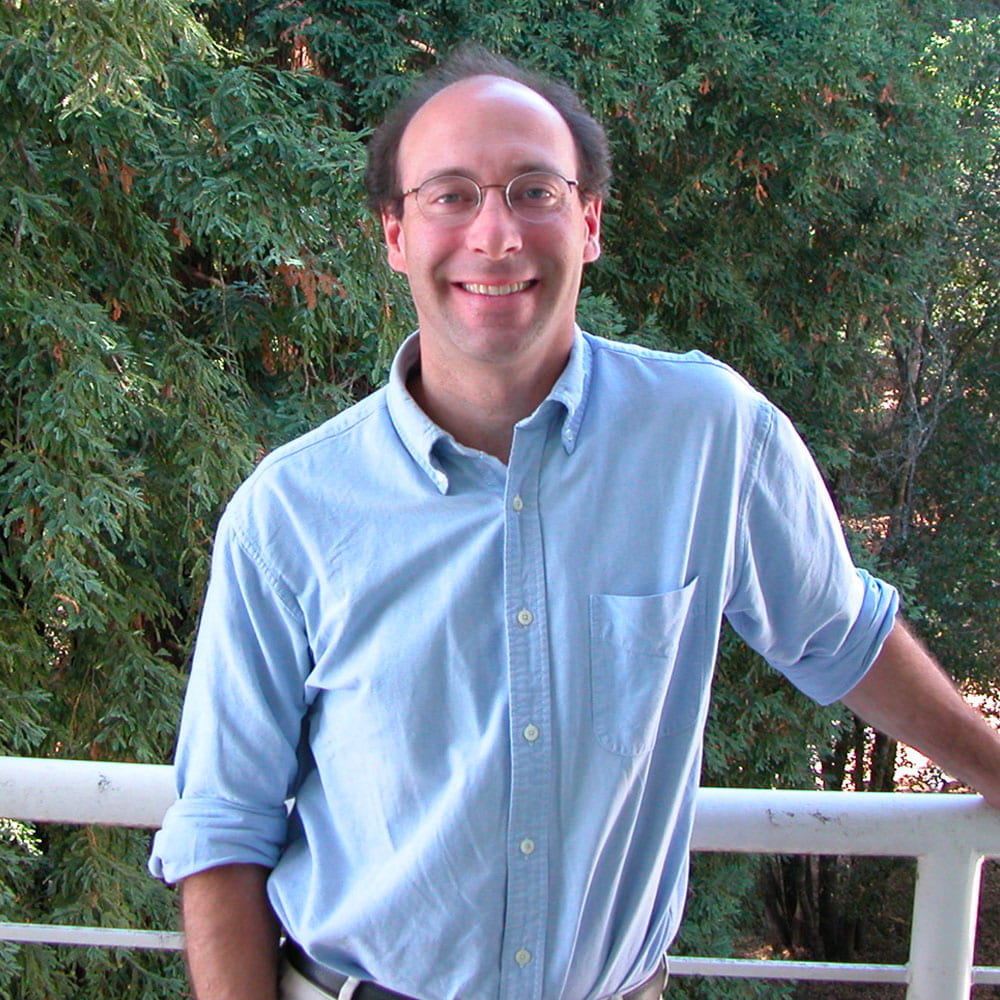
Website: UC Santa Cruz Ocean Modeling and Data Assimilation
Phone: 831-459-3734
Topics of Interest:
- Physical Oceanography
- Geophysical Fluid Dynamics
- Ocean Ecosystem Dynamics
- Ocean Observing Systems
Christopher A. Edwards
Affiliated Faculty
Earth & Ocean Sciences
Professor, Ocean Sciences
Dr. Edwards uses ocean models to investigate dynamics of the coastal ocean, including the physical circulation, ocean ecosystem processes, and mechanisms for larval transport with implications for marine population connectivity. He is also interested in ocean state estimation and data assimilation methods and their applications in the coastal ocean.
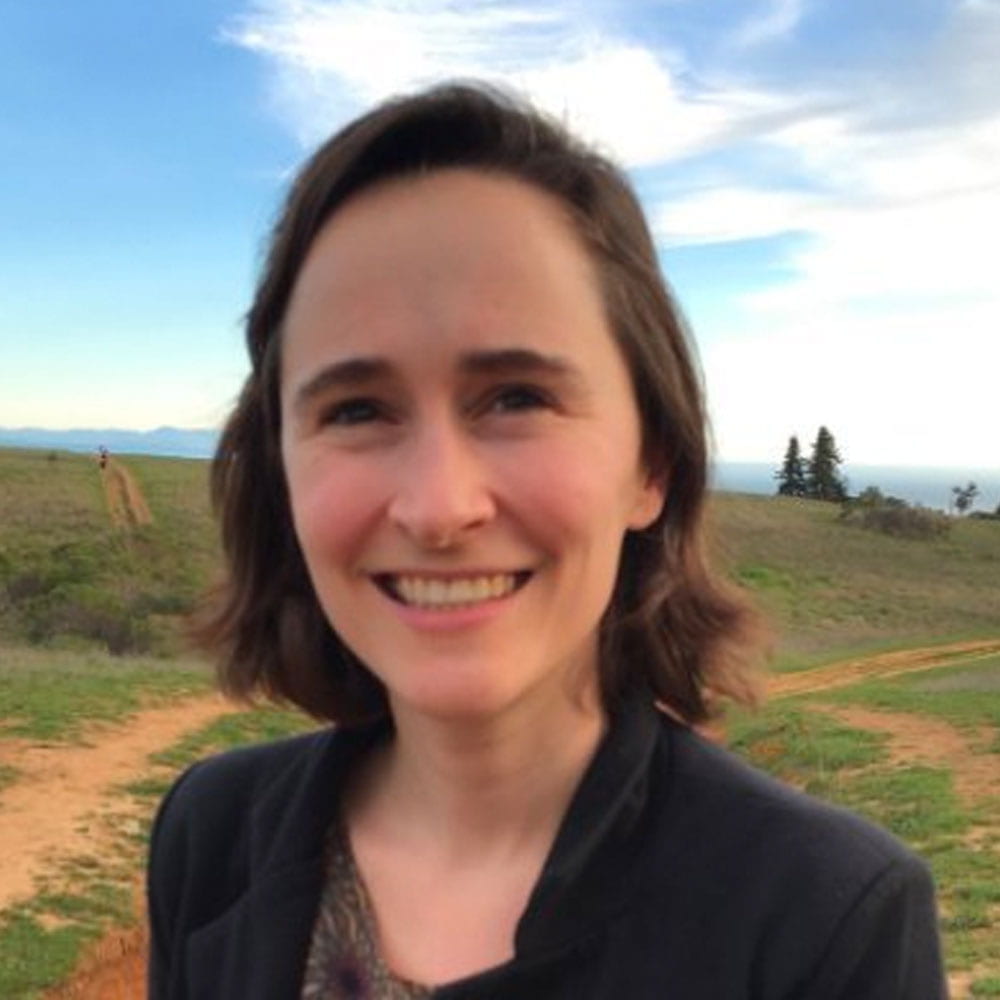
Website: UC AFTeR Project
Phone: 831-502-7645
Topics of Interest:
- Agri-food Systems
- Environmental Sociology
- Political Ecology
- Globalization and Development
- Ownership and Access to Land
Madeleine Fairbairn
Affiliated Faculty
Social Sciences
Associate Professor, Environmental Studies
Professor Fairbairn is a political ecologist whose work focuses on global agri-food systems. Her qualitative research explores the operations of capital within food and agriculture through the lenses of rural sociology and critical human geography. Her current projects explore the financial sector’s growing interest in buying farmland, as well as the dynamics of the burgeoning agri-food technology sector. Her first book, Fields of Gold: Financing the Global Land Rush, was released in 2020 by Cornell University Press.
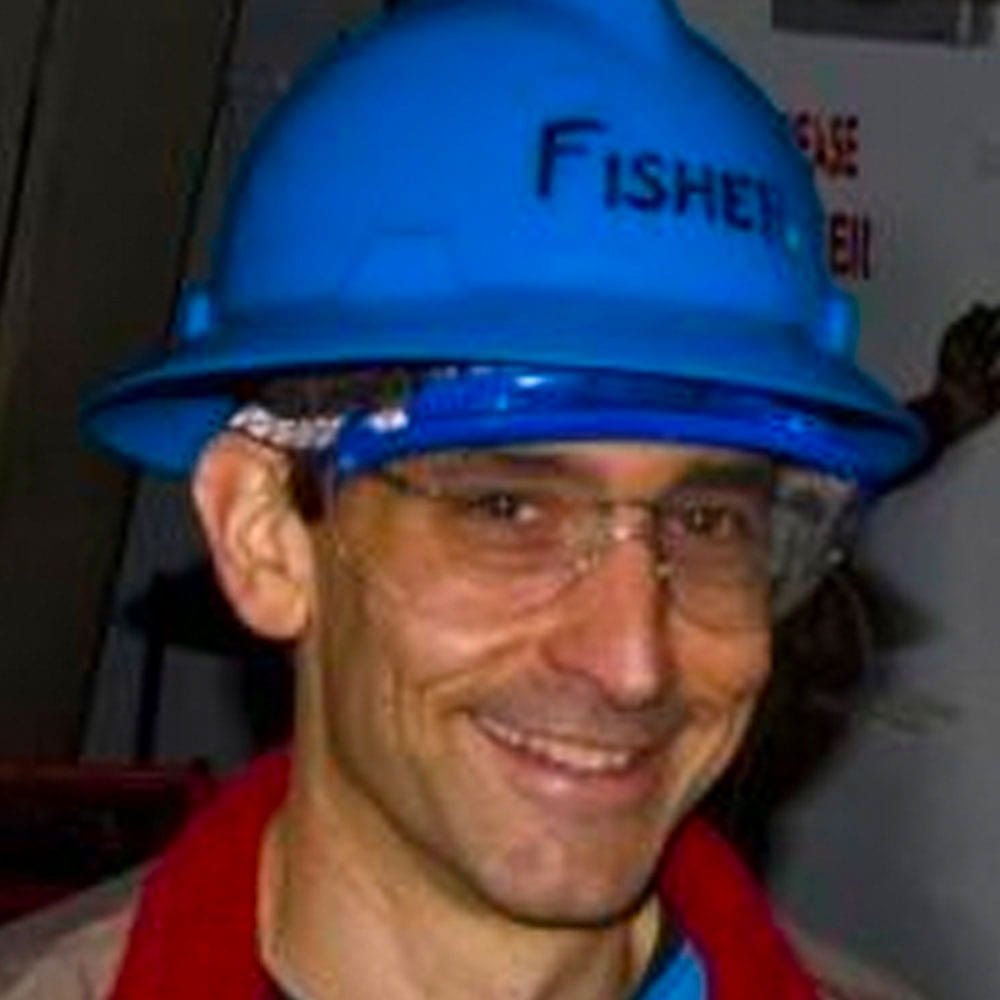
Website: UCSC Hydrology
Phone: 831-459-5598
Topics of Interest:
- Hydrogeology
- Water Resources
- Crustal Studies
- Heat Flow
- Coupled Modeling
- Geothermal Tool Development
Andrew T. Fisher
Affiliated Faculty
Earth & Ocean Sciences
Professor, Earth & Planetary Sciences
Projects that occupy much of Andy’s time these days involve development of tools and methods to develop and run managed aquifer recharge (MAR) systems, to simultaneously benefit both water supply and water quality objectives. Enhancements to water supply will help to reduce groundwater overdraft, contributing to reductions in the extent of subsidence, seawater intrusion, loss from critical surface reservoirs (including streams, lakes, and wetlands), and associated damage to fragile and valuable ecosystems. MAR operations can be run as part of a regional strategy, generating significant benefits to water managers, regulators, stakeholders, and aquatic ecosystems by shifting resource use patterns on the basis of (often unpredictable) availability; this characteristic will become increasingly important in coming decades as climate changes force modification of resource availability and use patterns. Many studies of MAR systems have focused on physical aspects of their operation, particularly causes and impacts of clogging. We are also working on quantitative reduction to nitrate loads during MAR, and evaluating links between microbial activity and nitrate removal. Improvements to water quality during MAR operations have been documented in a few cases, but mechanisms and controls on associated processes are poorly understood. We are also completing a regional mapping and modeling study of potential to link stormwater collection with MAR, and are developing new field sites where this approach can be applied and benefits can be verified. These projects apply novel technologies and techniques, connect UCSC to the broader community, and provide opportunities for training of the next generation of water resource specialists. Fisher has also collaborated on studies of submarine groundwater discharge, relations between river flooding and wetland enhancement, quantifying rates of surface-subsurface exchange below streams, and links between sediment load and reductions in groundwater recharge.
Dr. Fisher has been an advisor on the following CSP Capstone Projects:
Deepening considerations for listed species in groundwater- dependent ecosystems

Website: Holl Restoration Ecology Lab
Phone: 831-459-4015
Topics of Interest:
- Ecological Restoration
- Biodiversity Conservation
- Tropical Ecology
Karen D. Holl
Affiliated Faculty
Ecology & Evolution
Professor, Environmental Studies
Karen Holl is a Professor of Environmental Studies at the University of California, Santa Cruz. Her research focuses on understanding how local and landscape scale processes affect ecosystem recovery from human disturbance and using this information to restore damaged ecosystems. She studies restoration of rain forests in Latin America and chaparral, grassland and riparian systems in California. She oversees a long-term tropical forest restoration study in southern Costa Rica and has worked with students and collaborators in Mexico, Brazil, Colombia, and Panama. She advises numerous land management and conservation organizations in California and internationally on ecological restoration projects. She is the author of Primer of Ecological Restoration published in 2020 by Island Press. She was the 2017 co-winner of the Theodore Sperry Award of the Society for Ecological Restoration and was elected as a Fellow of the Fellow of the California Academy of Sciences and the Ecological Society of America. She teaches courses in restoration ecology, conservation biology, and environmental problem solving. She has served as chair of the Environmental Studies Department at UCSC and the as faculty director of the Kenneth S. Norris Center for Natural History.
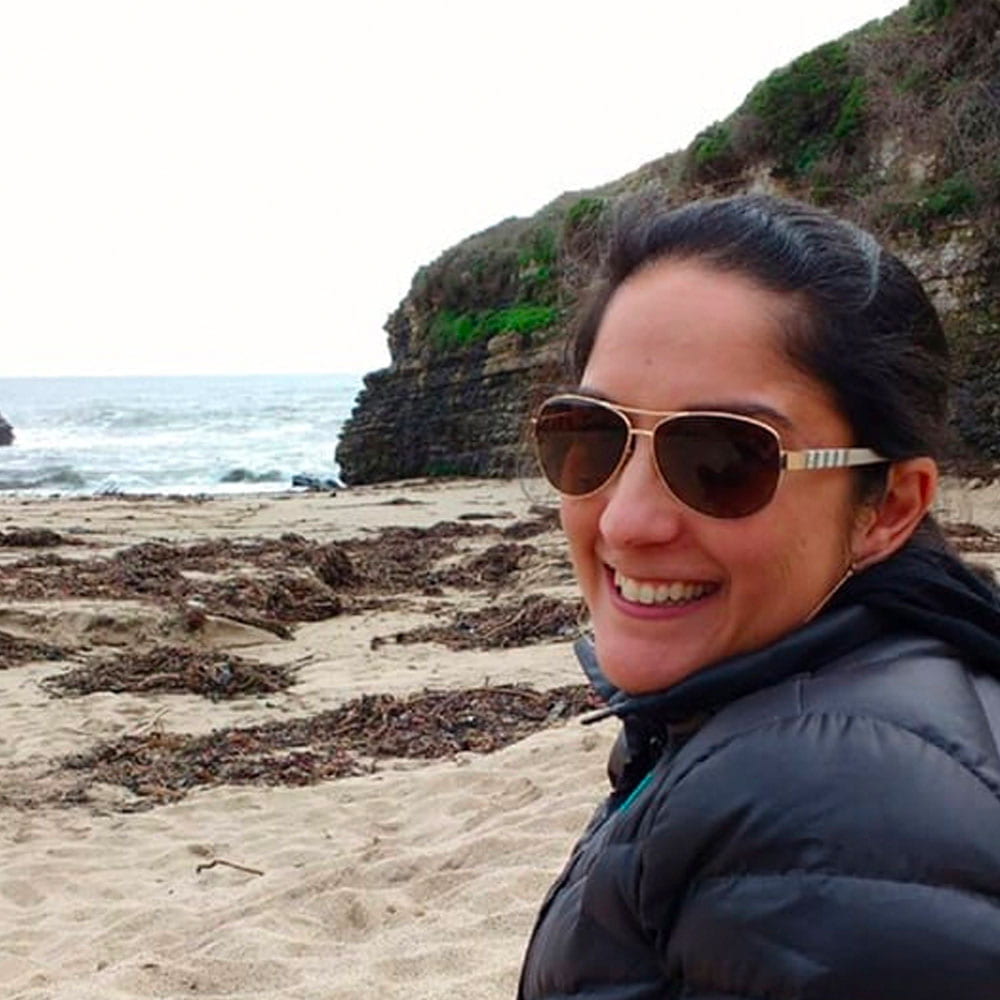
Email: sjinnah@ucsc.edu
Website: http://www.sikinajinnah.com/
Phone: 831-502-7224
Topics of Interest:
- Climate Change
- International and Global Affairs
- Environmental Justice
- Endangered Species
Sikina Jinnah
Affiliated Faculty
Policy & Governance
Associate Professor, Environmental Studies
Dr. Jinnah’s research focuses on the shifting locations of power and influence in global environmental governance, and in particular the role of transnational actors in environmental decision-making. Her most recent projects examine how key norms in global climate politics shape power relations, the role of U.S. preferential trade agreements in shaping environmental policy in trading partner nations, and the politics of climate engineering governance.
Dr. Jinnah has been an advisor on the following CSP Capstone Projects:
Equity Through Community Access to Climate Action Information
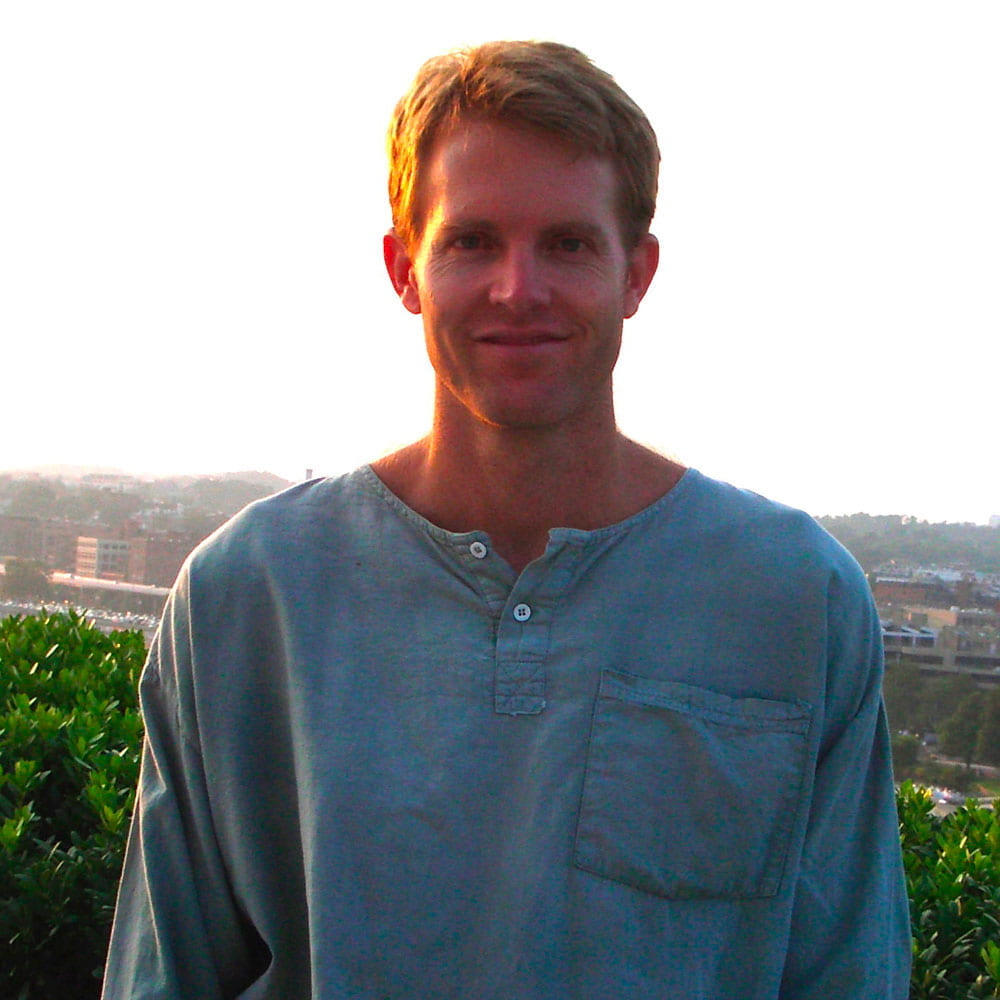
Website: Kilpatrick Lab
Phone: 831-459-5070
Topics of Interest:
- Conservation
- Infectious disease dynamics
- Population biology
A. Marm Kilpatrick
Affiliated Faculty
Ecology & Evolution
Professor, Ecology & Evolutionary Biology
Marm Kilpatrick’s research unites theory and empirical work to address basic and applied questions in population biology, including the ecology of infectious diseases, evolution, climate, behavior, genetics, and conservation. His lab’s general research philosophy is to begin each project by developing a mathematical model of the system to generate hypotheses and then test these hypotheses by gathering empirical data. His work in population biology includes studies of elephant seal, mosquito, and Weddell seal populations and predator-prey relationships. His research in disease ecology includes examining:
- Local drivers of pathogen transmission, including land use, host community composition, and climate; and
- The impact of disease on animal populations, and host responses, including the evolution of resistance and tolerance.
His disease ecology work includes studies of white-nose syndrome in bats, West Nile virus in mosquitoes and birds, avian malaria in Hawaiian birds, Lyme disease, chytridiomycosis in amphibians, Nipah virus in Bangladesh, and avian influenza.
Dr. Kilpatrick has been an advisor on the following CSP Capstone Projects:
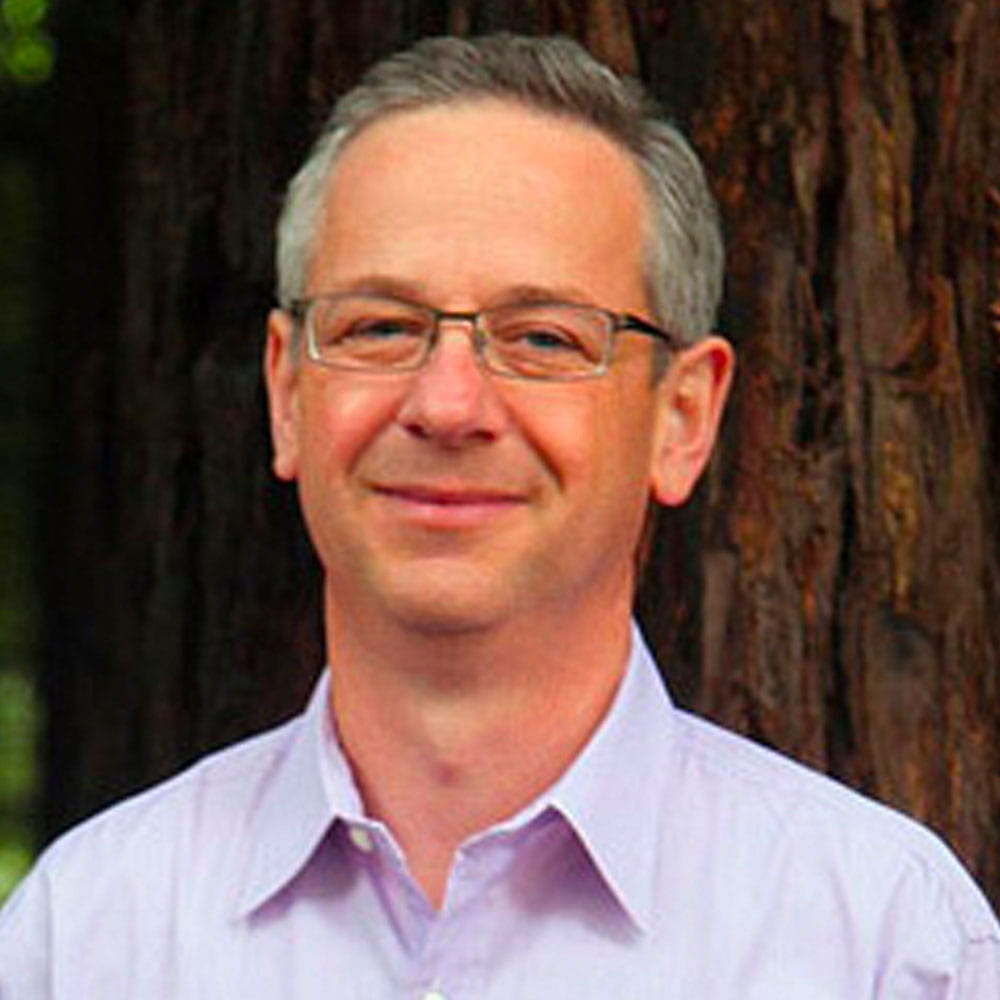
Website: Koch Lab
Phone: 831-459-4161
Topics of Interest:
- Isotope Biogeochemistry
- Vertebrate Paleontology
Paul Koch
Affiliated Faculty
Earth & Ocean Sciences
Dean, Division of Physical & Biological Sciences, Distinguished Professor,
Earth & Planetary Sciences, Institute of Marine Sciences
Paul’s research focuses on vertebrate paleoecology and evolution, which he places in environmental context through reconstruction of ancient ecosystems and climates. His work often includes biogeochemical analysis of animal tissues (teeth, bones, fur, skin, etc.) or environmental samples (soil minerals, fossil plants, etc.).
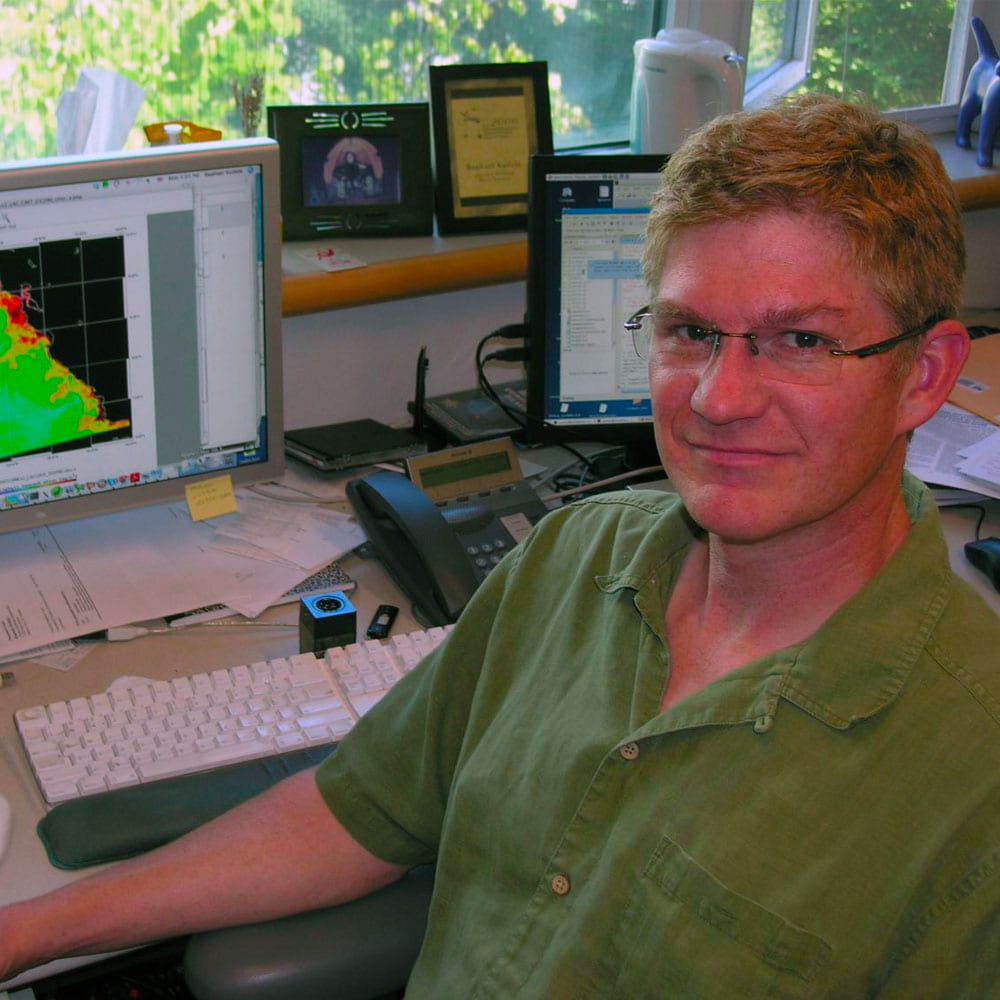
Website: http://oceandatacenter.ucsc.edu/home/
Phone: 831-459-3290
Topics of Interest:
- Ecological Modeling and Remote Sensing
- Satellite oceanography
- Phytoplankton Ecology
- Harmful Algal Blooms
Raphael Kudela
Affiliated Faculty
Earth & Ocean Sciences
Professor, Ocean Sciences
The Kudela lab is a key partner of the Central and Northern California Ocean Observing System (CeNCOOS), a national framework of integrated coastal observing systems covering coastal areas throughout the United States. The lab uses traditional and novel methods to monitor water quality and phytoplankton population dynamics in Monterey Bay. Part of the goal of CeNCOOS is to make this research readily available to the public, including timely information about algal blooms and ocean acidification. Recent projects in the Kudela Lab include developing guidelines for treatment of Pinto Lake (in collaboration with the Central Coast Water Board) and development of a Nutrient Assessment Framework for San Francisco Bay. Both project focus on the interplay of nutrient loading, harmful algae, and water quality, focusing on the link between terrestrial watersheds and the coastal ocean.
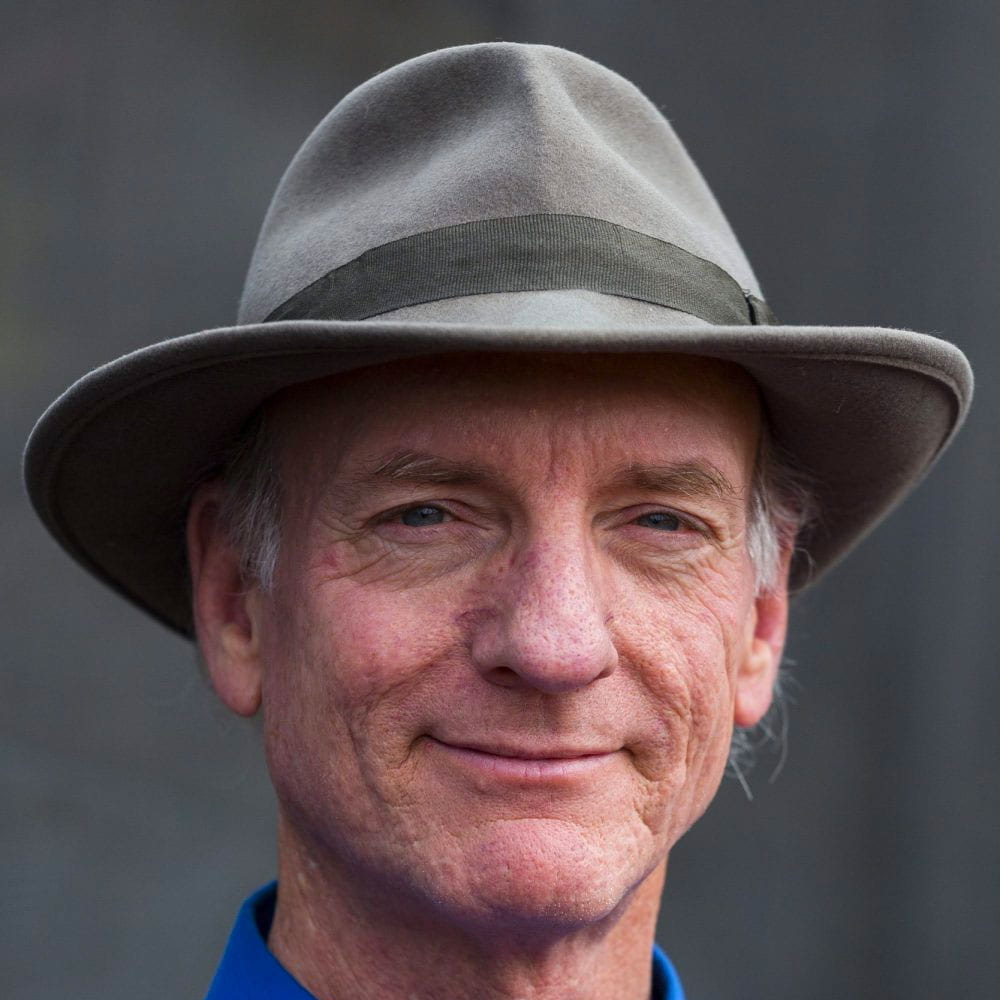
Website: The Loik Lab
Phone:831-459-5785
Topics of Interest:
- Climate Change
- Plant Stress Tolerance
- Elevated CO2
- Altered Precipitation
- Atmospheric Warming
- Sensors
- Sustainable Technology
Michael Loik
Affiliated Faculty
Ecology & Evolution
Professor, Environmental Studies
Michael Loik is a Professor of Environmental Studies at the University of California, Santa Cruz. His research focuses on understanding how plant and ecosystem processes are impacted by climate change, and developing technologies to mitigate greenhouse gas emissions. He studies impacts of drought, heat waves and other stresses on coastal grass and shrub lands, as well as mountain and desert ecosystems of California. He is the chief scientist of the International Drought Experiment at Younger Lagoon UC Reserve, the UCSC Arboretum and Botanic Gardens, and UCSC Campus Reserves. Prof. Loik is a lead or co-lead investigator on several studies embedding the Internet of Things, cutting-edge materials, and new platforms into vegetation monitoring, reducing carbon and water use of greenhouse environments, and developing novel renewable energy technologies. In ENVS he teaches classes on Plant Physiological Ecology, Climate Change Ecology, and Climate Change Adaptation & Mitigation.

Website: Paytan Biogeochemisty Lab
Phone: (831)-459-1437
Topics of Interest:
- Climate Change
- Sustainability
- Education
- Marine/Coastal Systems
Adina Paytan
Affiliated Faculty
Earth Sciences
Professor, Earth & Planetary Sciences, Ocean Sciences Department
Adina’s principal research interests lie in the fields of biogeochemistry, chemical oceanography and paleoceanography. The goal of her research is to use the chemical and isotopic records enclosed in a wide range of earth materials to study present and past biogeochemical processes. This research spans a wide range of temporal (seasons to millions of years) and spatial (molecular to global) scales. An over-arching goal of this research is to understand the processes and feedbacks operating in the Earth System and how they relate to global changes in climate and tectonics as well as natural and anthropogenically induced perturbations that affect biogeochemical processes and their impact on humans and the environment.
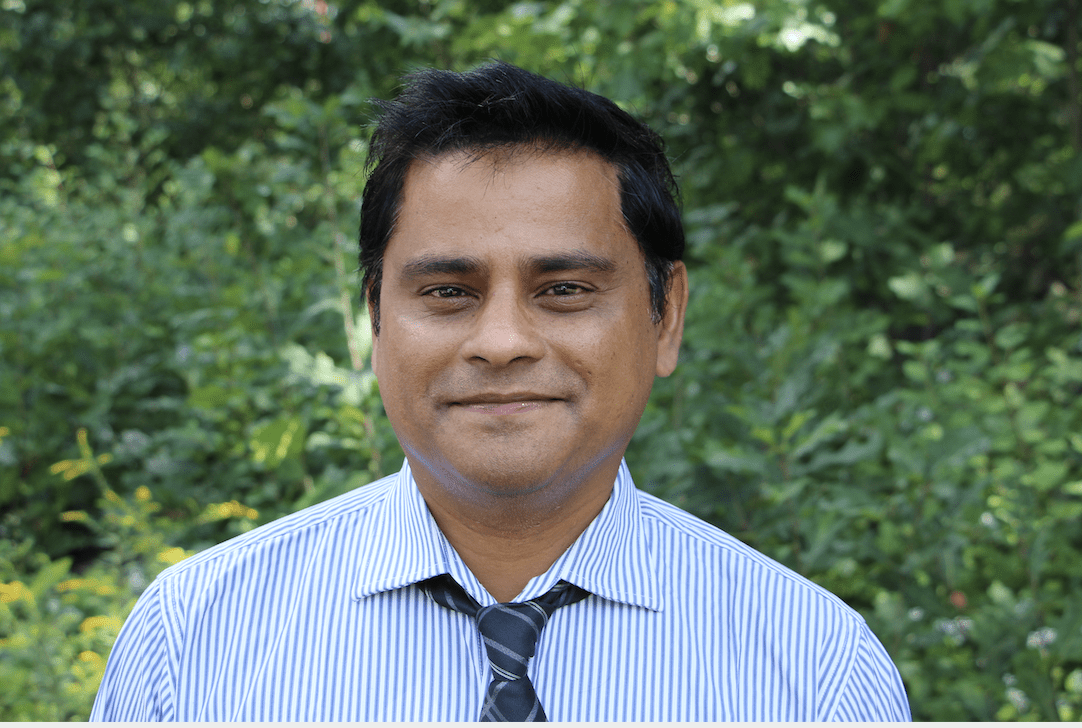
Email: psarker@ucsc.edu
Website: https://kapsar.sites.ucsc.edu/
Topics of Interest:
- Sustainable Aquaculture
- Sustainable Food Systems
- Aquaculture and Nutrition
- Ecological Aquaculture
- Feed Design, Formulation and Digestibility
- Fish and Shellfish Nutrition
- Integrated Aquaculture-Agriculture
Pallab Sarker
Affiliated Faculty
Social Sciences
Assistant Professor, Environmental Studies Department
Pallab Sarker is a sustainable aquaculture expert, and his research interests involve shifting aquaculture, the world’s fastest-growing food sector, to sustainability by redesigning the composition of aqua-feeds because they drive life-cycle environmental effects of aquaculture, both inputs and emissions. He is developing ecological aquaculture principles and practices to reduce nutrient and carbon emissions and other environmental impact. His current research focuses on developing ocean-friendly fish-free aquaculture diet by combining microalgae to maximize the diet’s nutrient quality, economic viability, and benefits for environmental conservation. His research also focuses on integrated aquaculture-agriculture (IAA) to strengthen sustainable, climate resilient, and equitable stewardship of the food system that produces fish food and fresh vegetables for humans.
Dr. Sarker has been an advisor on the following CSP capstone projects:
‘Sea’ing Further: Closing Knowledge Gaps & Improving Sustainability along the Aquafeed Supply Chain (link coming in June 2024)
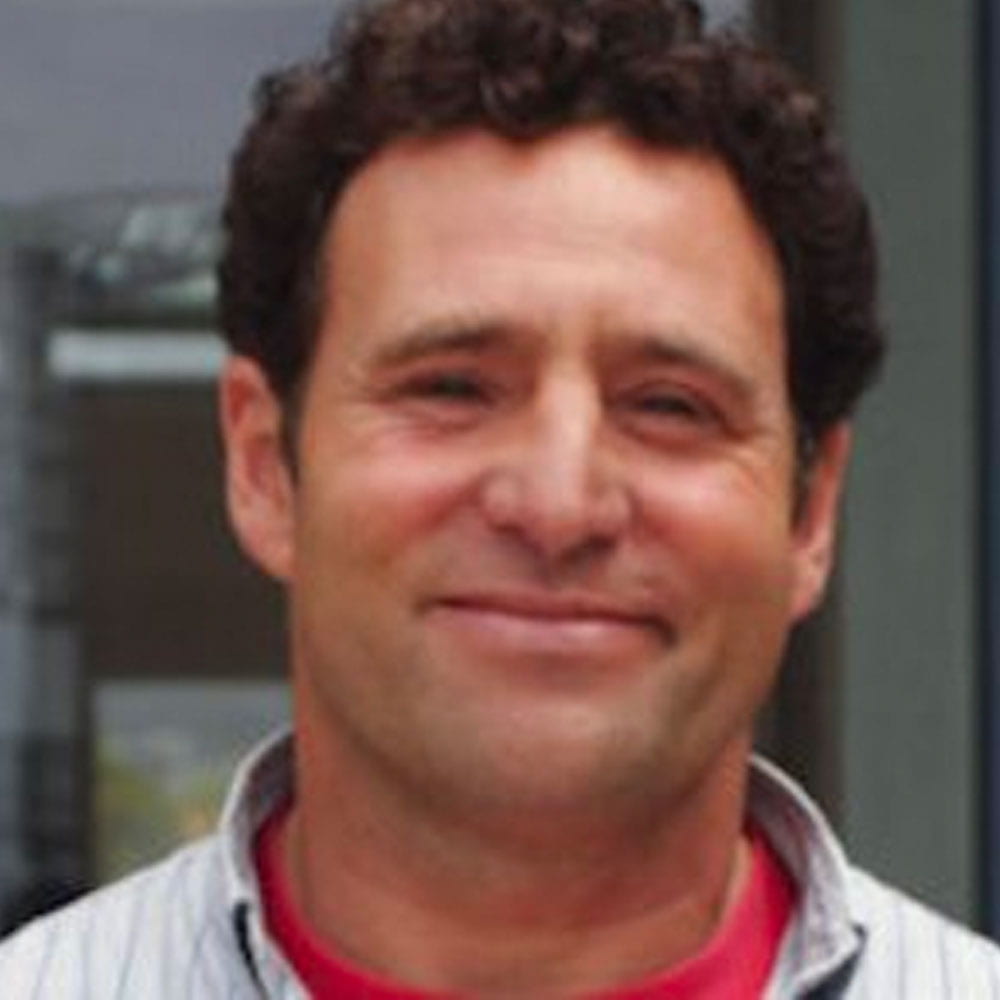
Website: https://ccal.ucsc.edu/bernie-tershy/
Topics of Interest:
- Innovation
- Leadership
- Freshwater Species
- Endangered Species
- Machine Learning for Wildlife Conservation
- Marine and Coastal Conservation
Bernie Tershy
Affiliated Faculty
Ecology and Evolution
Adjunct Assistant Professor, Ecology & Evolutionary Biology Department
Bernie Tershy is a serial conservation entrepreneur. He has co-founded several organizations including:
- the Conservation Action Lab, which has published over 140 papers on the conservation and ecology of marine, island and endangered species, and trained 25 graduate students and post docs who now hold significant positions in conservation and academia;
- Island Conservation and Conservación de Islas, two science-based NGOs that protected over 460 insular endemics from extinction and formed over 1,665,000ha of new marine and island protected areas.
- Conservation Metrics, a for-profit conservation company that uses machine learning tools to analyze sensor-derived big data on wildlife populations, and drive iterative improvements in conservation practice.
In addition, he recently helped start the Henry Arnhold Fellows Program, which finds great people with proven conservation solutions and helps them take those solutions to scale. He continues his entrepreneurship through his recent startup, Freshwater Life, which protects the most endangered freshwater species from extinction.
Dr. Tershy has been an advisor on the following CSP Capstone Projects:
Strengthening Community Co-Management of a Mekong River Fish Conservation Zone Network
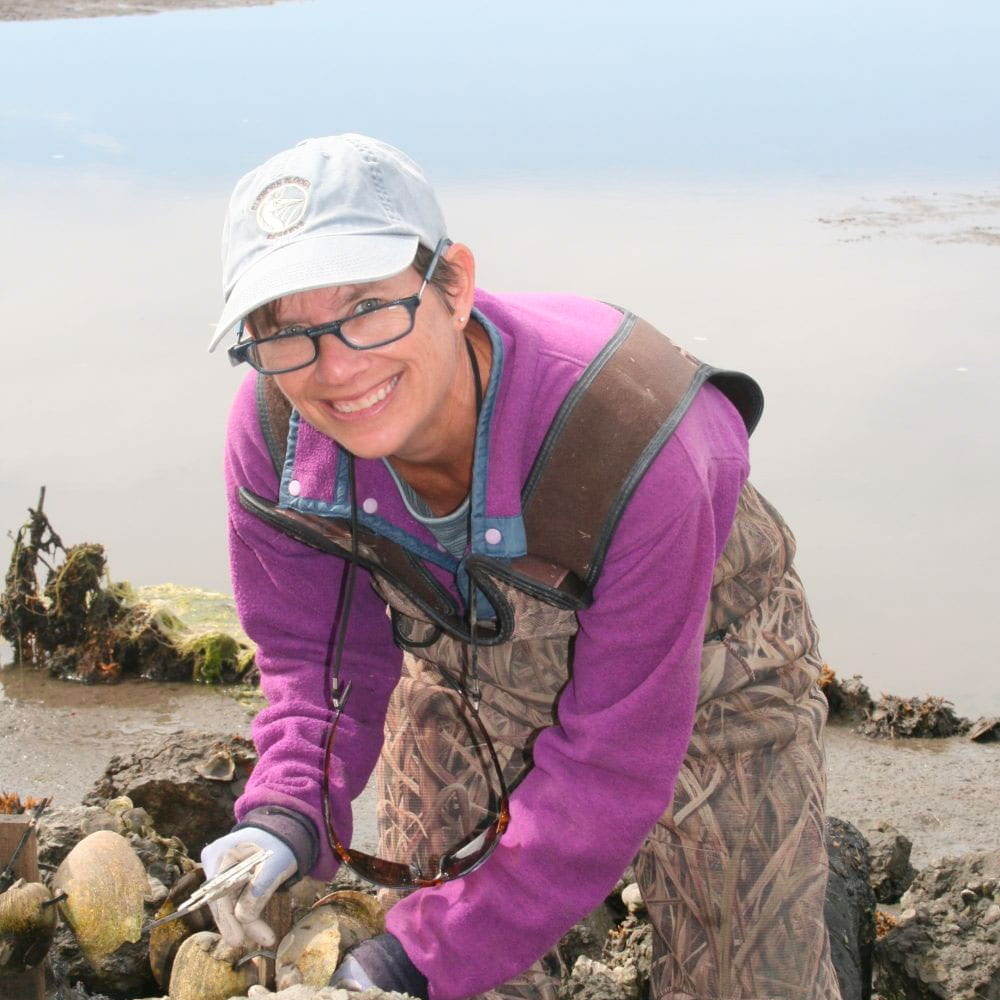
Website: Wasson Research Lab
Phone:831-728-2822 x310
Topics of Interest:
- Conservation Aquaculture
- Climate Change
- Ecology
- Estuary Sciences and Restoration
- Restoration Science
Kerstin Wasson
Affiliated Faculty
Ecology & Evolution
Adjunct Professor, Department of Ecology and Evolutionary Biology
Kerstin has served as Research Coordinator at the Elkhorn Slough National Estuarine Research Reserve since 2000. Her research is aimed at providing critical information to improve management of coastal ecosystems. In 2004, she launched an ambitious ecosystem-based management initiative to bring together stakeholders to jointly form a vision and strategic plan to protect and restore Elkhorn Slough, a gem of an estuary in the heart of Monterey Bay. She nominated Elkhorn Slough as a wetland or international importance, resulting in its designation as the 39th Ramsar site in the US. Kerstin is leading conservation aquaculture and restoration of the native oyster in Elkhorn Slough, where it is near local extinction. She is also the lead scientist on a 50-acre salt marsh restoration project at Elkhorn Slough, conducting replicated experiments involving about 20,000 plants and tracking natural colonization processes. In addition to local, place-based work, Kerstin has led major collaborative projects across the network of 30 National Estuarine Reserve Reserves, and among Pacific coast oyster restoration scientists spanning 2500 km of coastline.
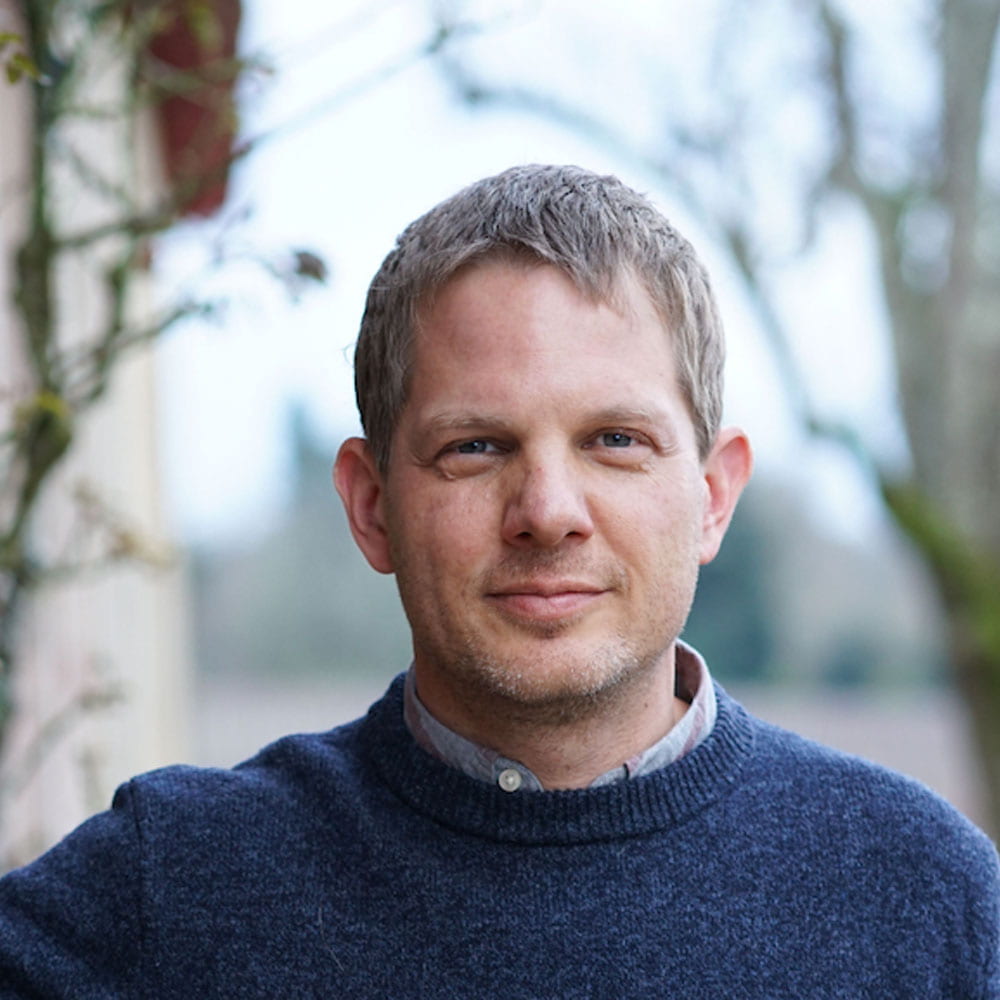
Website: Wilmers Lab
Phone: 831-459-2634
Topics of Interest:
- Climate Change
- Ecology/Natural History
- Quantitative Analysis/Modeling
- Biodiversity Conservation
- Insects/Wildlife
- Natural Reserves
Christopher C. Wilmers
Affiliated Faculty
Ecology & Evolution
Associate Professor, Environmental Studies
The Wilmers lab group seeks to understand how global change (climate change, habitat alteration and human hunting) influences animal behavior, population dynamics and community organization. The lab’s emphasis is on combining quantitative and field techniques to better understand the ecology of wildlife so as to better inform their management and conservation. Please visit http://wildlife.ucsc.edu for more information.
Adjunct Faculty

Email: mwbeck@ucsc.edu
Website: Coastal Resilience Lab
Topics of Interest:
- Climate Change
- Coastal Hazards
- Coastal Management
- Climate Risk Reduction, Mitigation and Adaptation
- Disaster Risk Management
- Innovation
- Nature-based Solutions
- Resilience
- Solution-based Science
- Sustainability
Mike Beck
Adjunct Faculty
Earth & Ocean Sciences
Director, Coastal Climate Resilience Center, Research Professor & AXA Chair in Coastal Resilience, co-director of the new Climate Risks and Equitable Nature-based Solutions Hub, Institute of Marine Sciences, Department of Ocean Sciences, Coastal Science & Policy Program
Dr. Michael W. Beck is the AXA Chair in Coastal Resilience, Research Professor in the Institute of Marine Sciences, and Adjunct Professor in Ocean Sciences at the University of California Santa Cruz. Mike aims to reduce risks to people, property and nature in his work across science, policy and practice. Mike works with governments, businesses and conservation groups to bring clear tools and results to decision-makers. Mike served for 20 years as Lead Marine Scientist at The Nature Conservancy.
Mike has advised government agencies in the US, Germany, UK, EU, Philippines, Jamaica, and Grenada among others. He has collaborated with many global agencies and companies including the World Bank, AXA XL, Munich Re, Swiss Re, Lloyd’s of London, Risk Management Solutions, and Jacobs. Mike has authored more than 80 peer-reviewed scientific papers and numerous Op-eds in the NY Times, The Hill, The Conversation, and the Miami Herald. He has been a Fulbright Fellow and Pew Marine Conservation Fellow.
Dr. Beck has been an advisor on the following CSP Capstone Projects:
Enhancing Environmental Management for Sustainable Coastal Resilience: A Comprehensive Policy Brief for Seagrass Protection and Rehabilitation (link coming in June 2024)
Coral Reef Restoration for Risk Reduction
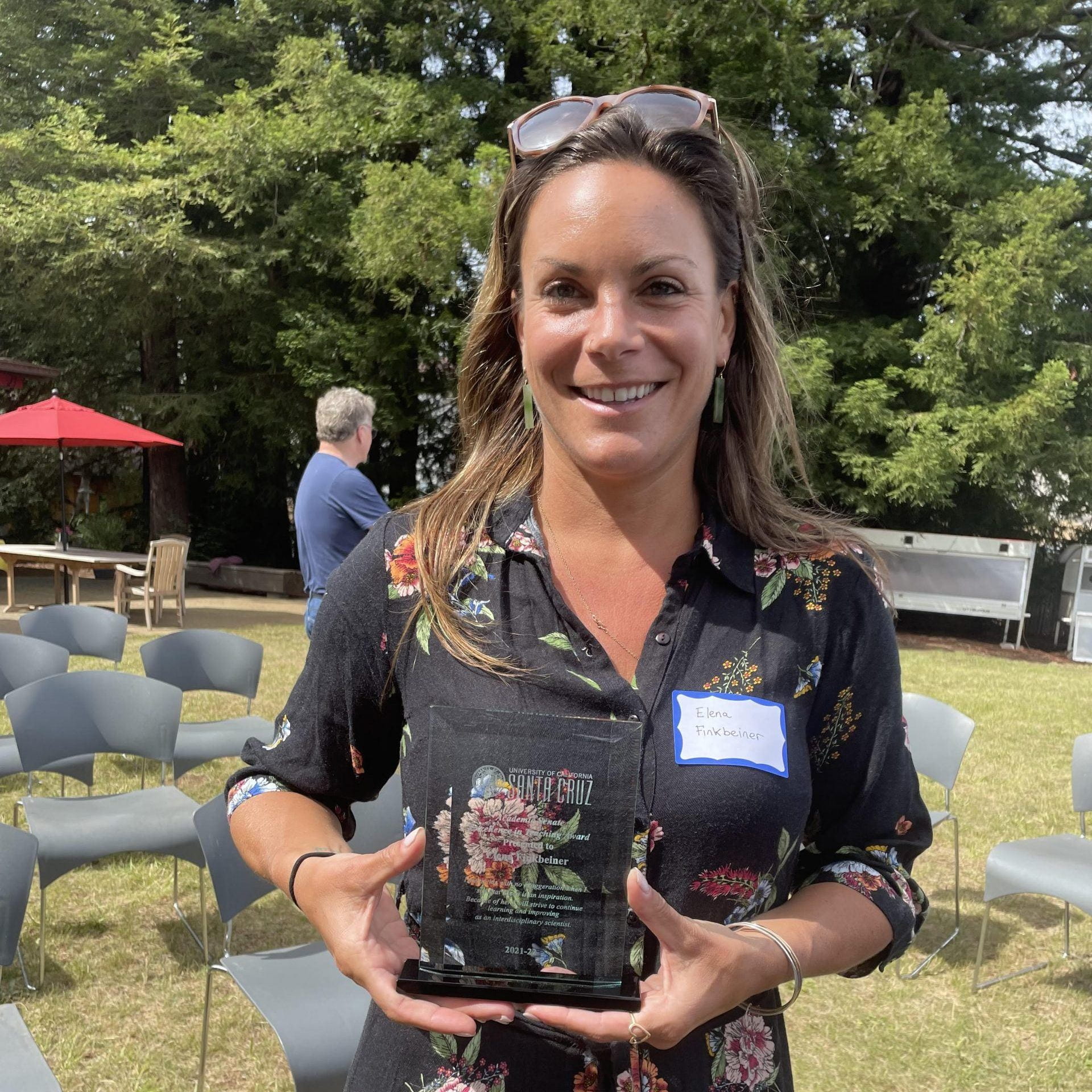
Email: efinkbei@ucsc.edu; efinkbeiner@conservation.org
Phone:+1 925 528 9050
Website: http://conservation.org/oceans
Topics of Interest:
- Small-scale fisheries governance
- Adaptive capacity
- Resilience
- Social-ecological systems
- Role of diversification in fisheries
- Solution-based science
- Human rights and social justice considerations in natural resource management and conservation
- environmental entitlements and access
Elena Finkbeiner
Assistant Adjunct Faculty
Social Sciences
Coastal Community Fisheries Program Manager, Conservation International; Assistant Adjunct Professor, Coastal Science & Policy Program
Elena Finkbeiner is the Fisheries Science Program Manager at Conservation International’s Center for Oceans. She holds a master’s degree from Duke University’s Nicholas School for the Environment and a Ph.D. from Stanford University. Elena is interested in understanding and improving adaptive capacity and equality within and across fishing communities and integrating a human rights-based approach to fisheries governance. She has over a decade of experience working in small-scale fisheries along the Baja Peninsula.
Prior to joining Conservation International as staff, Finkbeiner was a postdoctoral research associate at Arizona State University’s Center for Biodiversity Outcomes. Her fellowship was co-sponsored by CI and the Nereus Project (The Nippon Foundation).
Dr. Finkbeiner has been an advisor on the following CSP Capstone Projects:
Co-Developing Guiding Principles for the Indigenous Marine Managed Area (IMMA) in Busuanga Island, Palawan, Philippines (link coming June 2024)
Oceanic Manta Ray Conservation through Participatory Marine Spatial Planning in Bahía de Banderas, Mexico (link coming June 2024)
Integrating Justice, Equity, Diversity and Inclusion within Conservation Non-profits
Improving Human Welfare in the Peruvian Mahi Mahi Fishery
Coral At Risk: The need for coral monitoring citizen science programs in Shenzhen City, China
Complexities in sea turtle bycatch: The case of artisanal fisheries in Northern Argentina
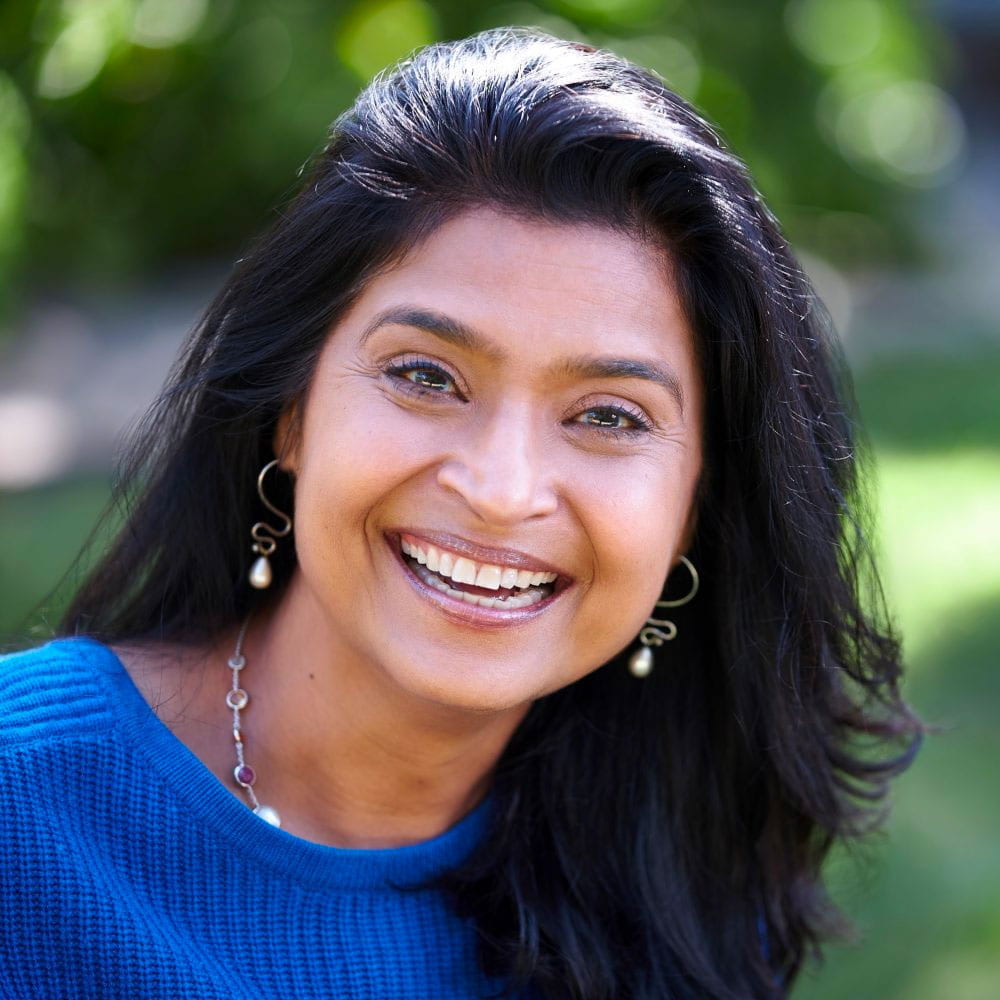
Email: radhika@gmail.com
Topics of Interest:
- Innovation
- Lean Design
- Practical Applications Development
- Social Impact
- Scaling Solutions
Radhika Malpani
Adjunct Faculty
Social Sciences
Assistant Adjunct Professor, Coastal Science & Policy Program
Radhika Malpani has over 30 years’ experience in the technology sector, working at leading organizations including Google, Hewlett Packard and Siemens.
At Google, Radhika was a Senior Engineering Director, responsible for initiating and scaling up several critical products over a period of two decades. Starting with leading Google Ads in 2000, Radhika founded Google Images, growing it to over 1B queries/day. In addition to starting Google Local Search, she also led Google Travel Search to help users better plan their leisure trips.
Radhika has always been interested in the application of technology for social impact, and left Google in mid 2019 to focus full-time on helping mission-oriented startups scale. She uses her long experience with building and scaling successful products to help founders think through strategic issues. She is very interested in bringing those same entrepreneurial approaches to educating the next generation of leaders, focusing on practical applications to research. She has partnered with professors at UCSC and Steve Weinstein (Stanford) to create and co-teach Hacking4Oceans, teaching the use of Lean Design methodologies to solve problems critical to coastal and ocean habitats, and is currently working on expanding the class nationally. The class will now also be offered at Univ of Rhode Island, UCSD and Univ of Hawaii by spring 2022.
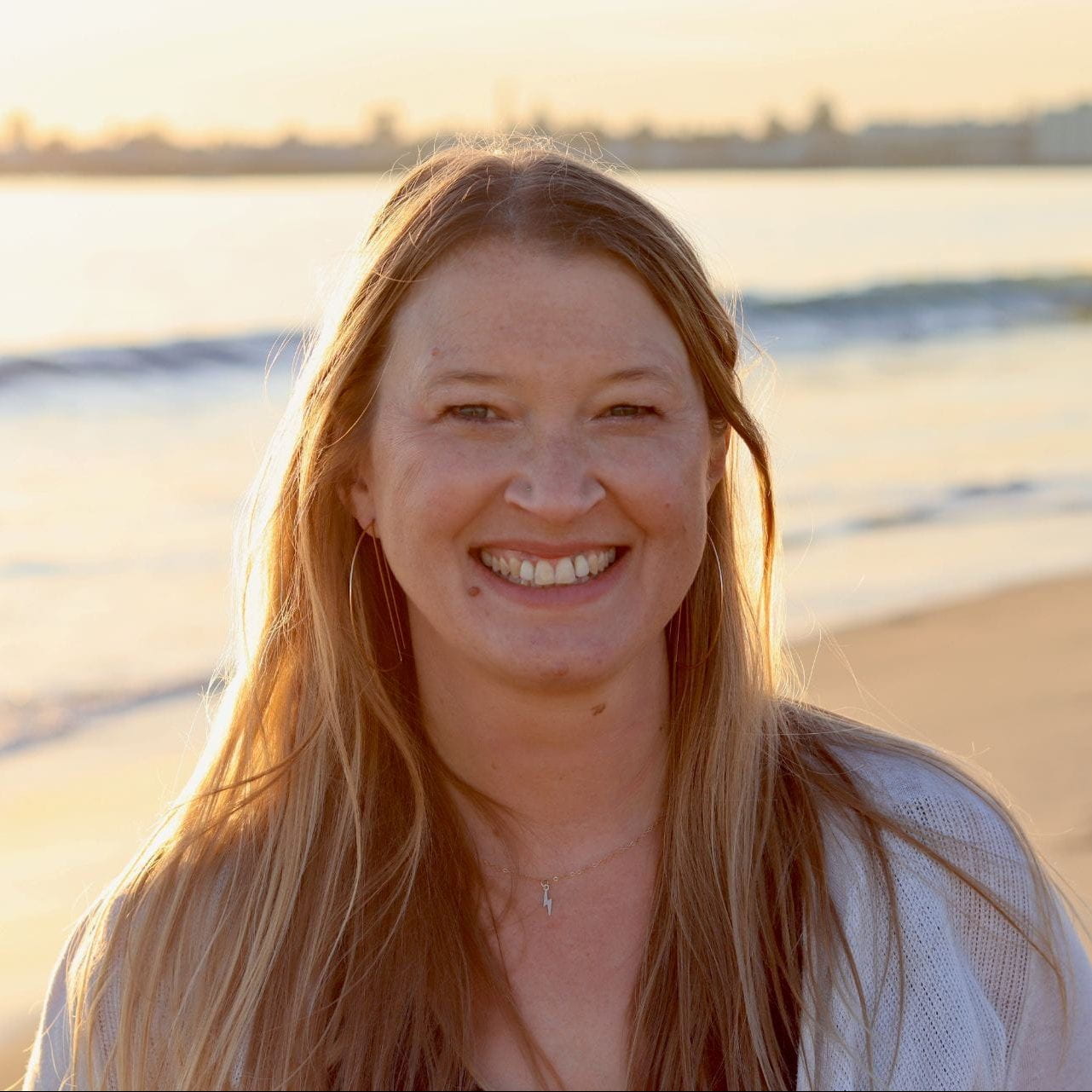
Email: aridlon@ucsc.edu
Website: https://www.aprilridlon.com/
Phone: 831-728-2822
Topics of Interest:
- Ecology
- Climate Change Adaptation
- Biodiversity Conservation
- Ecological Restoration
- Environmental Justice
- Marine/Coastal Systems
- Conservation Aquaculture
- Fisheries
April D. Ridlon
Adjunct Faculty
Ecology and Evolution
Assistant Adjunct Professor, Coastal Science & Policy Program
April is the Director of Science for US & CA Ocean Conservation at the Monterey Bay Aquarium, where she develops research and conservation strategies and partnerships, serves as a science advisor for the Aquarium’s state and federal policy activities, and oversees research to advance the recovery of southern sea otters and improve the resiliency of coastal ecosystems, including kelp forests and estuaries. As an ecologist, April has studied the effects of various human activities on marine systems, including fishing and harvesting, aquaculture, recreational activities, and biological invasions. As a conservationist, she works internationally and across disciplines, sectors, and cultures to generate solutions and ensure equitable representation of stakeholders. She especially enjoys translating scientific results and jargon into understandable narratives for diverse audiences while teaching, coordinating volunteer efforts, or working alongside local communities. She is particularly committed to uplifting Indigenous communities in the management and stewardship of their coastal systems. April received her PhD from the University of California, Santa Barbara and is the former Director of the Native Olympia Oyster Collaborative, where she led an international network focused on restoring populations of Ostrea lurida from British Columbia to Baja California.
Dr. Ridlon has been an advisor on the following CSP Capstone Projects:
Policy Pathways for Advancing Tribally-led Native Shellfish Aquaculture for Climate Resilient Ecosystems and Native Foodways in California (link coming in June 2024)
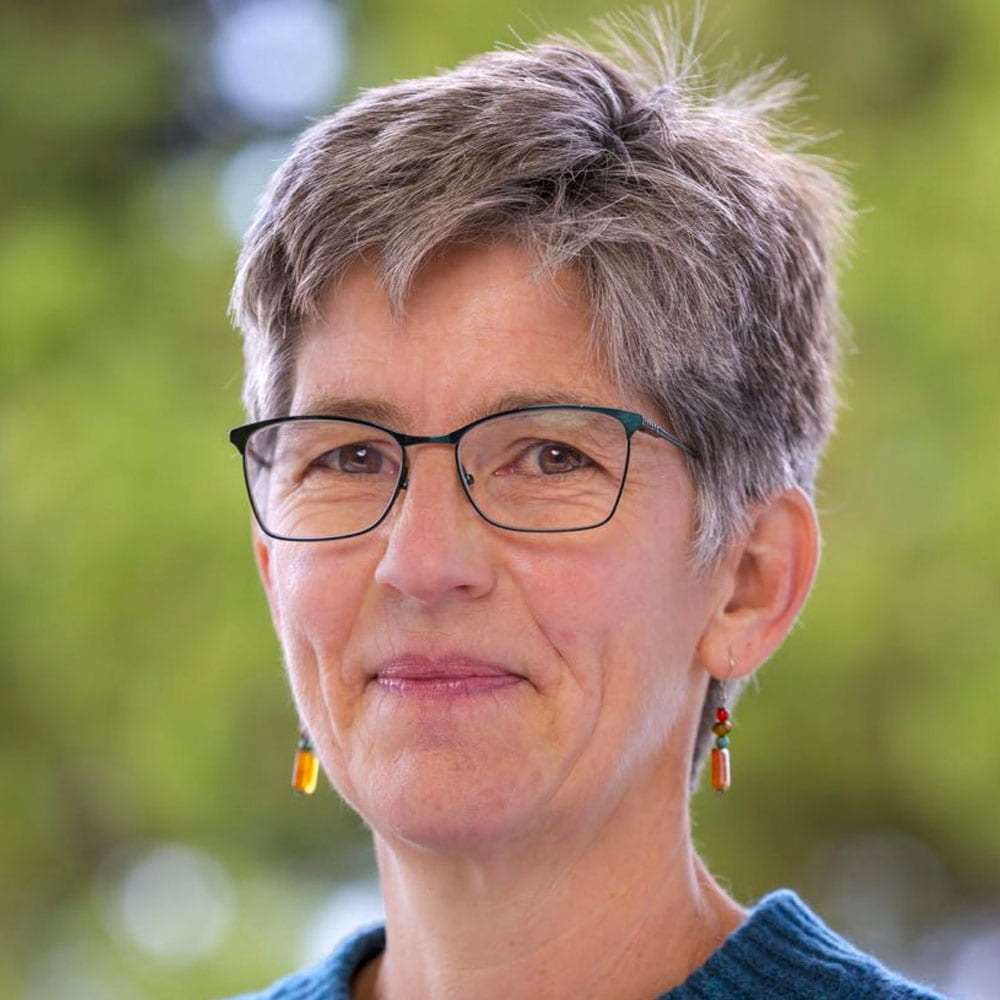
Email: cpomeroy@ucsc.edu
Topics of Interest:
- Marine Policy & Ocean Governance
- Marine Social-Ecological Systems
- Human Dimensions of Fisheries
- Marine Space Use Coordination
- Harmful Algal Blooms
- Integrated Qualitative and Quantitative Analysis
Carrie Pomeroy
Adjunct Faculty
Social Sciences
Research Social Scientist, UCSC Institute of Marine Sciences; Assistant Adjunct Professor, Coastal Science & Policy Program
Carrie Pomeroy is a social scientist whose work addresses the social, economic and cultural aspects — the “human dimensions” — of marine systems as they affect and are affected by environmental, socioeconomic and regulatory factors, and its application to community planning, resource management, and broader decision-making. Her current work focuses on building capacity to address socioeconomic information needs and objectives for fisheries management, coordinating ocean space use, ensuring a safe and sustainable seafood supply, and adapting to climate change. As a California Sea Grant Extension Specialist, she served for over a decade on the California Dungeness Crab Task Force and the California Salmon Council. She currently serves on the California Ocean Protection
Council Science Advisory Team, the National Academy of Sciences Committee on Offshore Science and Assessment for Ocean Energy Management, and the NOAA-BOEM-RODA Synthesis of Science: Fisheries and Offshore Wind – Socioeconomics Author Team.
Dr. Pomeroy has been an advisor on the following CSP Capstone Projects:
Advancing Future Community Engagement in Ecological Restoration (link coming in June 2024)
Striped Bass Ecology: Predicting Occupancy on the Lower Stanislaus to Inform Research & Management
Lecturers
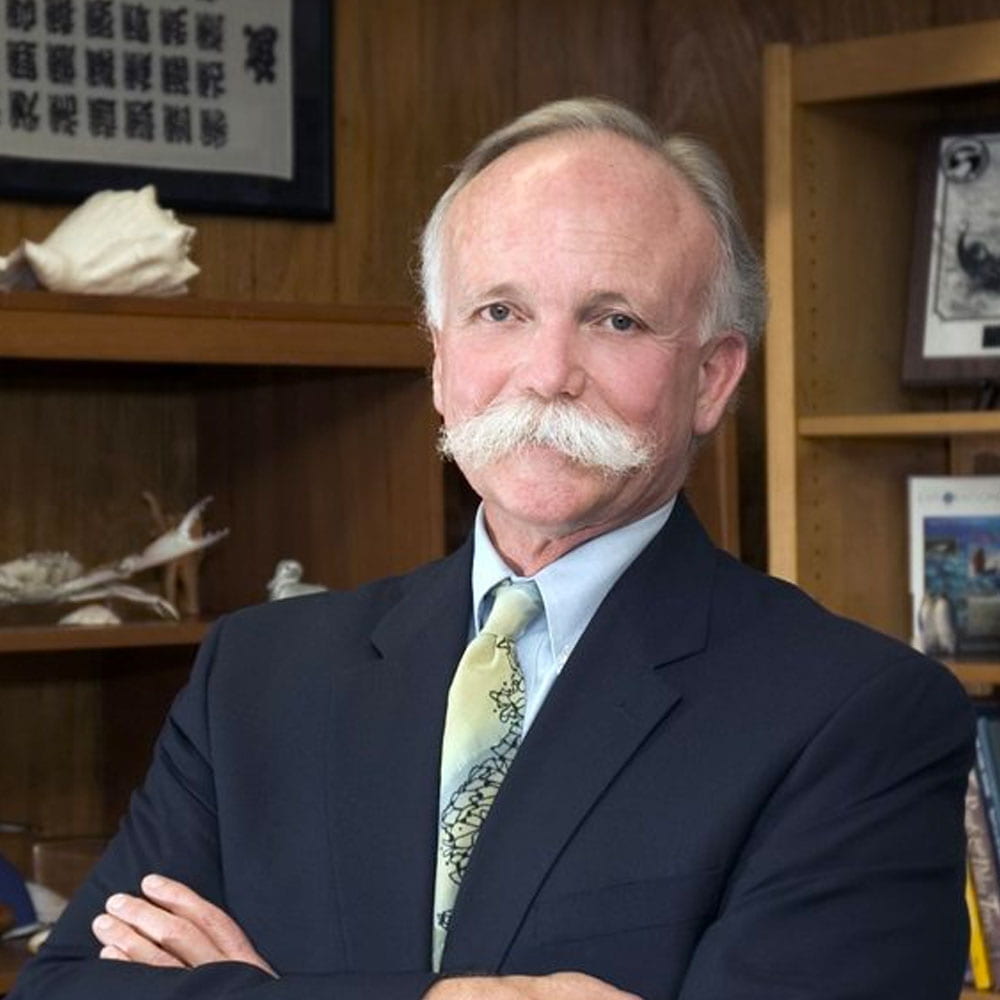
Email: mko@duke.edu
Michael K. Orbach
Lecturer Coastal Science & Policy
Professor of the Practice Emeritus of Marine Affairs and Policy in the School of the Environment at Duke University
Research Professor with the Institute for Marine Science at the University of California at Santa Cruz
Affiliated Researcher with the Center for Ocean Solutions, Stanford University
Senior Fellow, Center for the Blue Economy, Middlebury Institute of International Studies at Monterey
Michael K. Orbach is Professor of the Practice Emeritus of Marine Affairs and Policy in the School of the Environment at Duke University, Research Professor with the Institute for Marine Science at the University of California at Santa Cruz, Affiliated Researcher with the Center for Ocean Solutions, Stanford University, and Senior Fellow, Center for the Blue Economy, Middlebury Institute of International Studies at Monterey. His BA is in Economics from the University of California at Irvine, and his MA and PhD are in Cultural Anthropology from the University of California at San Diego. He joined the Duke faculty, with offices at the Duke Marine Laboratory in Beaufort, North Carolina, in 1993, and served as Director of the Marine Lab from 1998 to 2006 and as Director of the Coastal Environmental Management Program from 1993 to 2014. Mike has performed research on, and has been involved in development and implementation of, coastal and marine policy on all coasts of the U.S. and in Mexico, Central America, Europe, the Caribbean, Alaska and the Pacific, Europe and Asia and has published widely on social science and policy in coastal and marine environments. He has been a member of the Ocean Studies Board and on many panels for the National Academy of Sciences; a Governor-appointed member of the North Carolina Marine Fisheries Commission and Chair of the North Carolina Marine Science Council; the President of the Coastal Society and the Southern Association of Marine Laboratories; and Chairman of the Board of Directors of the Surfrider Foundation. Now retired in Santa Cruz, CA, he is a member of the Board of Directors of the Ocean Conservancy and is Chairman of the Standing Committee on Offshore Science and Assessment of the Ocean Studies Board of the National Academy of Sciences.
Visiting Faculty
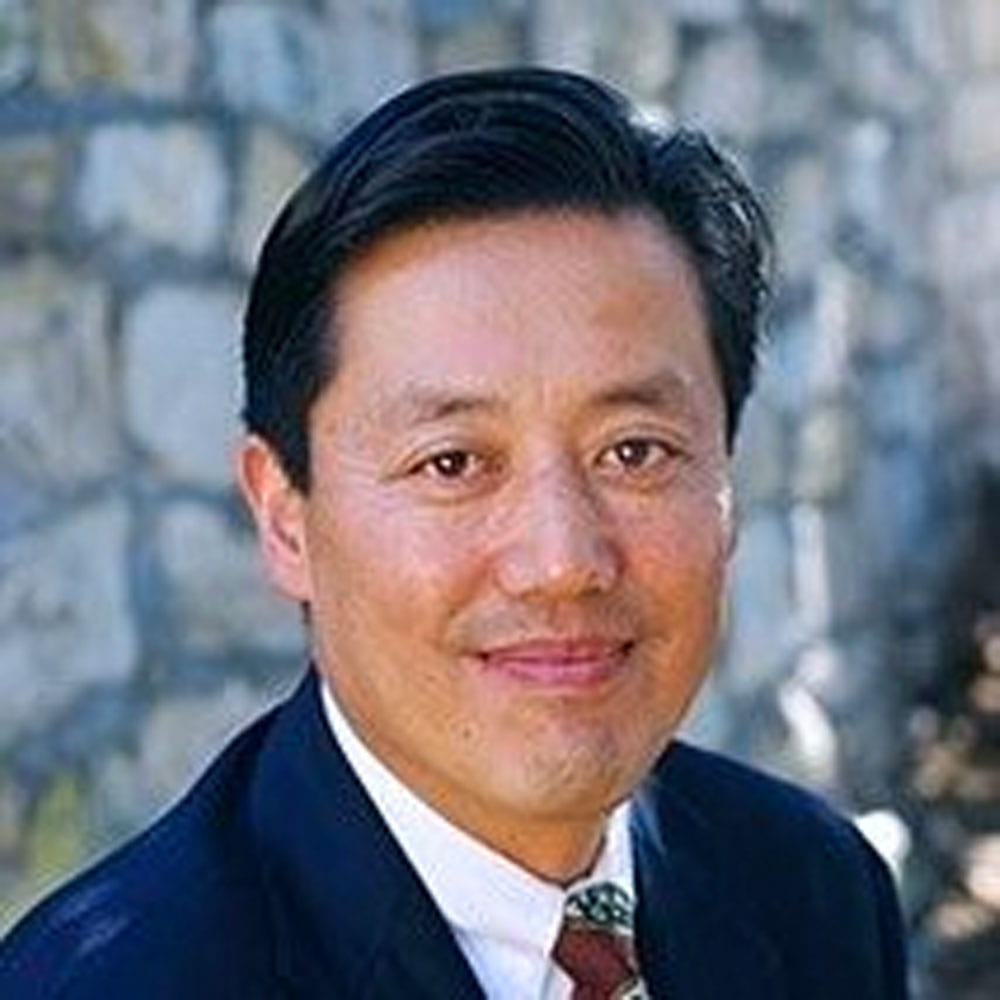
Email: yuwei.shi@ucsc.edu
Website: bluepioneers.ucsc.edu
Yuwei Shi
Visiting Faculty
Coastal Science and Policy Program and Academic Director of theBlue Pioneers Program
Yuwei Shi is a visiting professor in the Coastal Science and Policy Program and Academic Director of the Blue Pioneers Program. He is also professor emeritus at the Middlebury Institute of International Studies at Monterey. His current research and practice interests center on impact management in social enterprise, corporate sustainable strategy, and ESG and impact investing. His publications include over three dozen papers in peer-reviewed journals, seven books and book chapters and dozens of articles in popular media. He is an award-winning teacher known for architecting innovative pedagogy, course and program design. He pioneered the raw-case method of learning and led the development of impactful programs including the Frontier Market Scouts Fellowship Program and the Blue Pioneers Program. At Middlebury Institute he was professor of strategic management and key faculty member of its MBA in global impact management program. Also at Middlebury he served two terms as the Dean of the Graduate School of International Policy and Management. He had twenty years of experience as founder of a tech venture, advisory partner at a venture capital firm, and consultant to well-known management consulting firms. He holds Bachelor of Engineering from Shanghai Jiaotong University, Master of Comparative Laws from the Dedmen School of Law at Southern Methodist University,and Ph.D. in Organization, Strategy and International Management from the Naveen Jindal School of Management at the University of Texas at Dallas.
